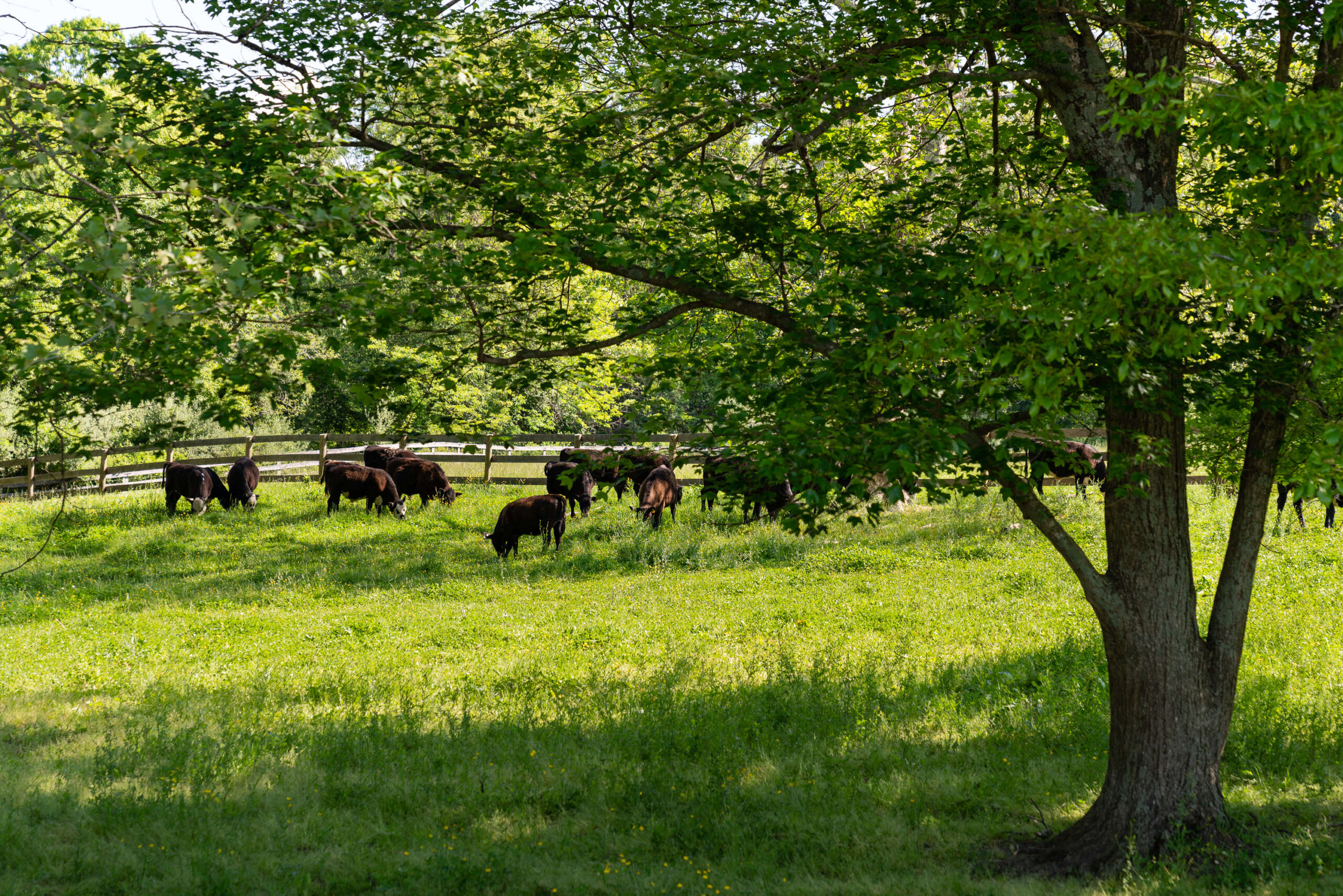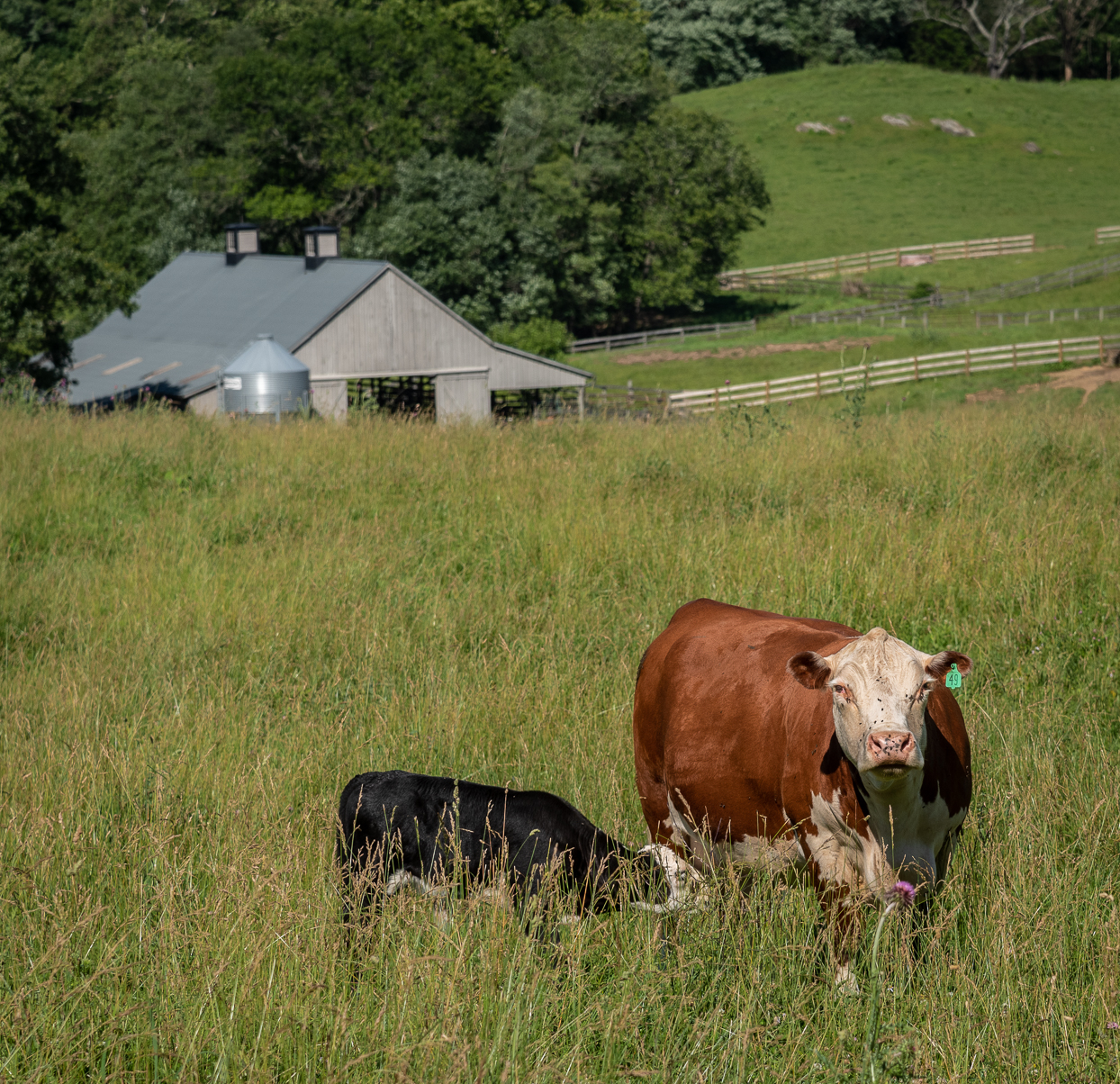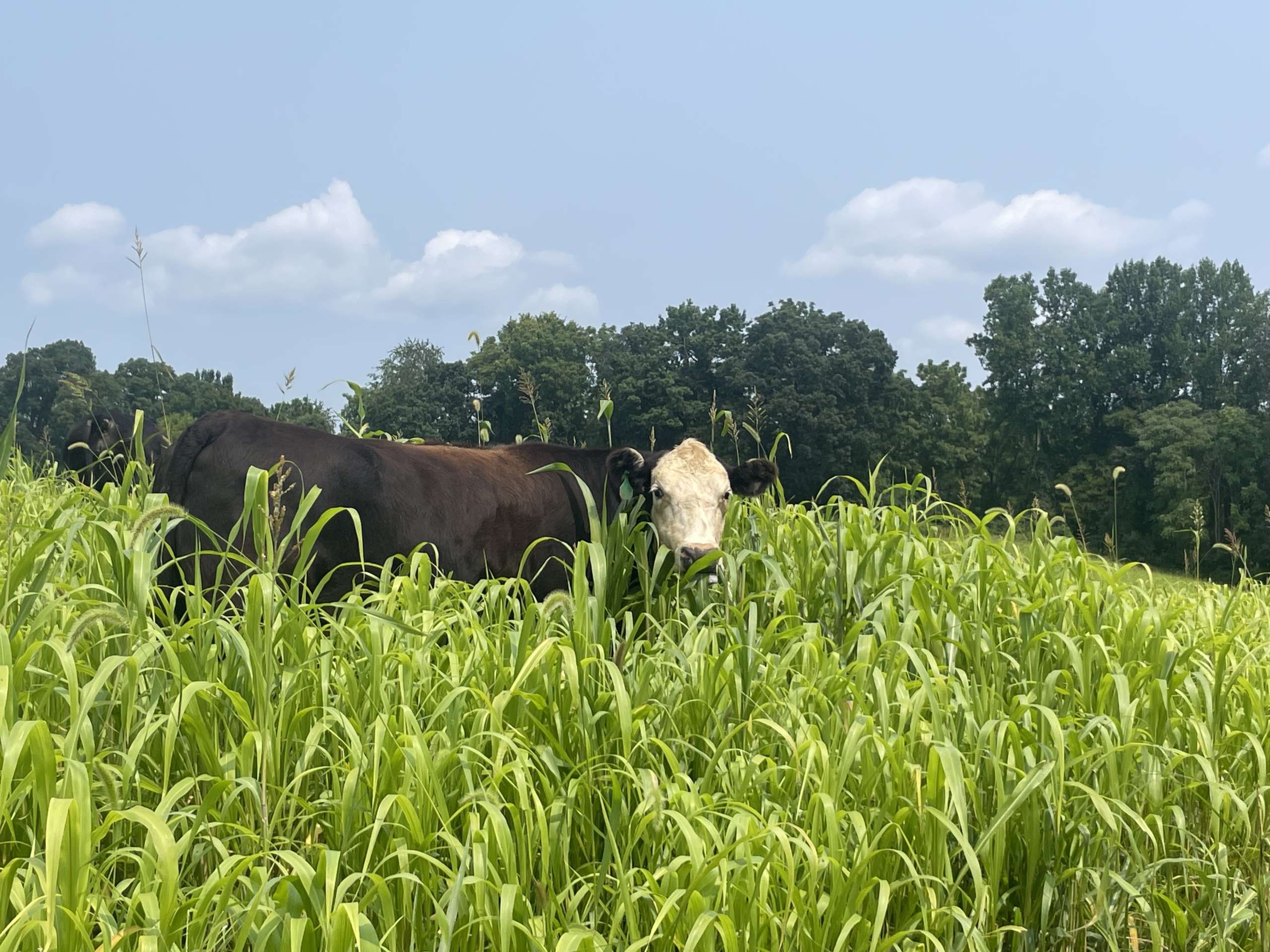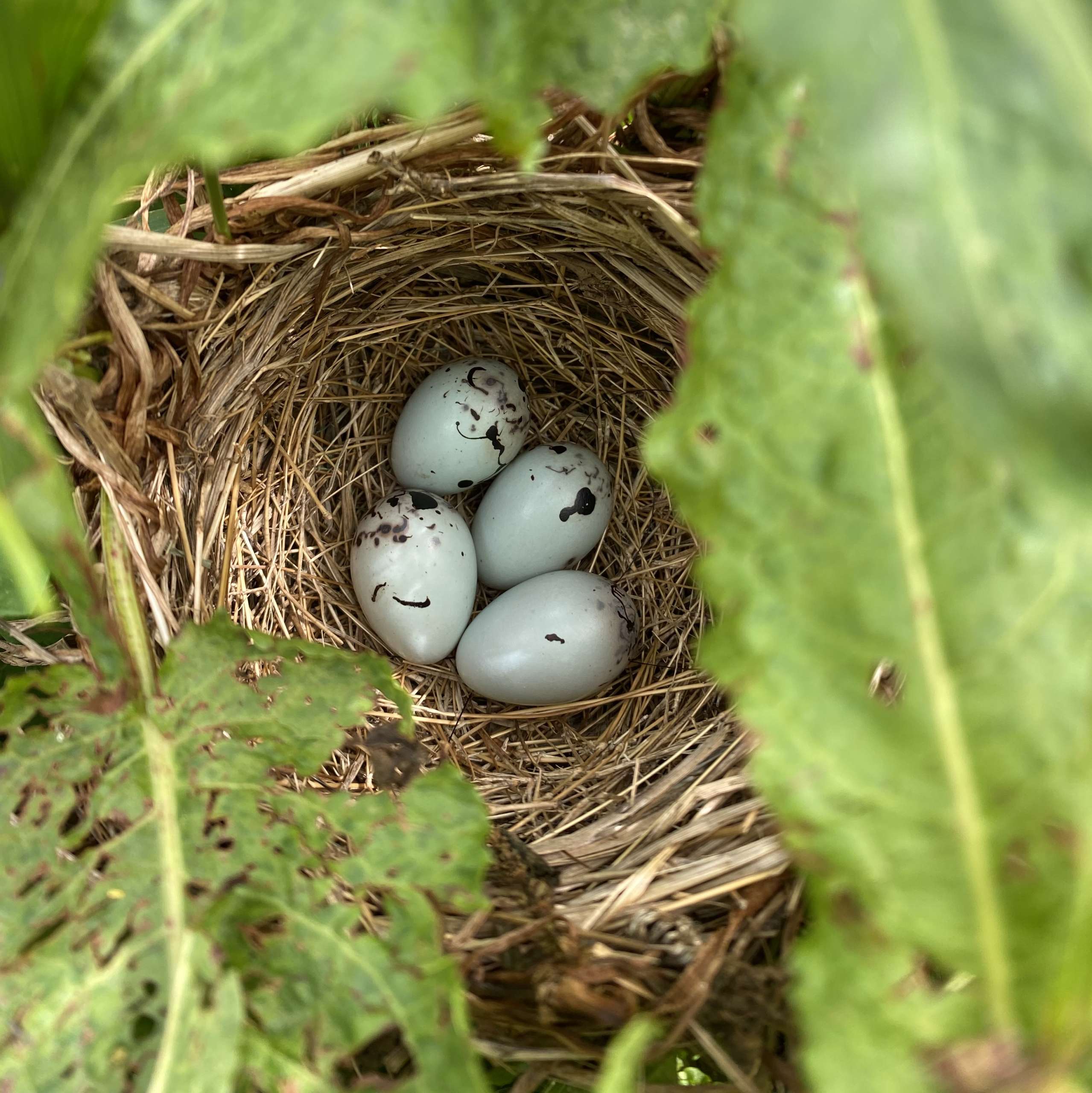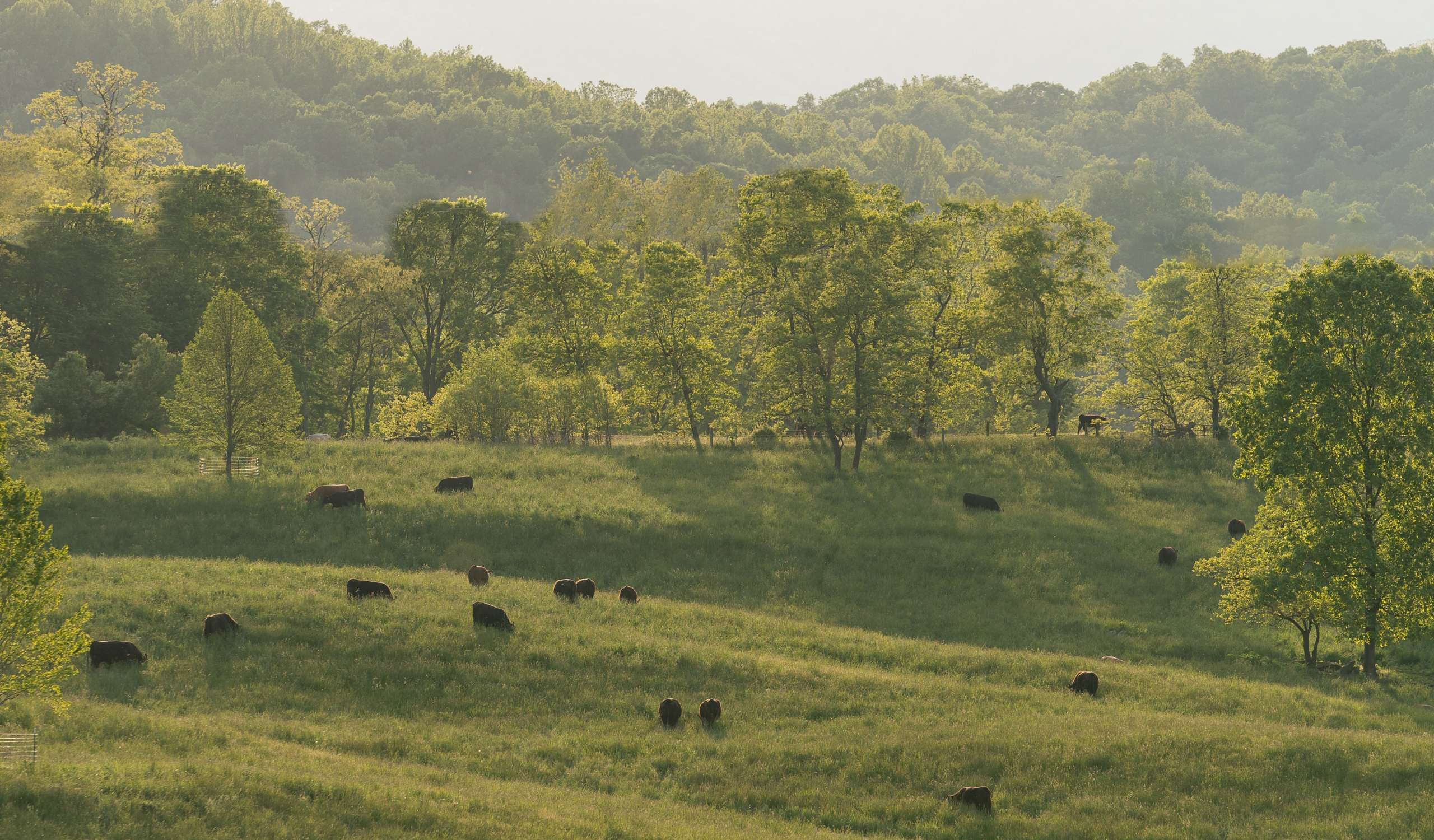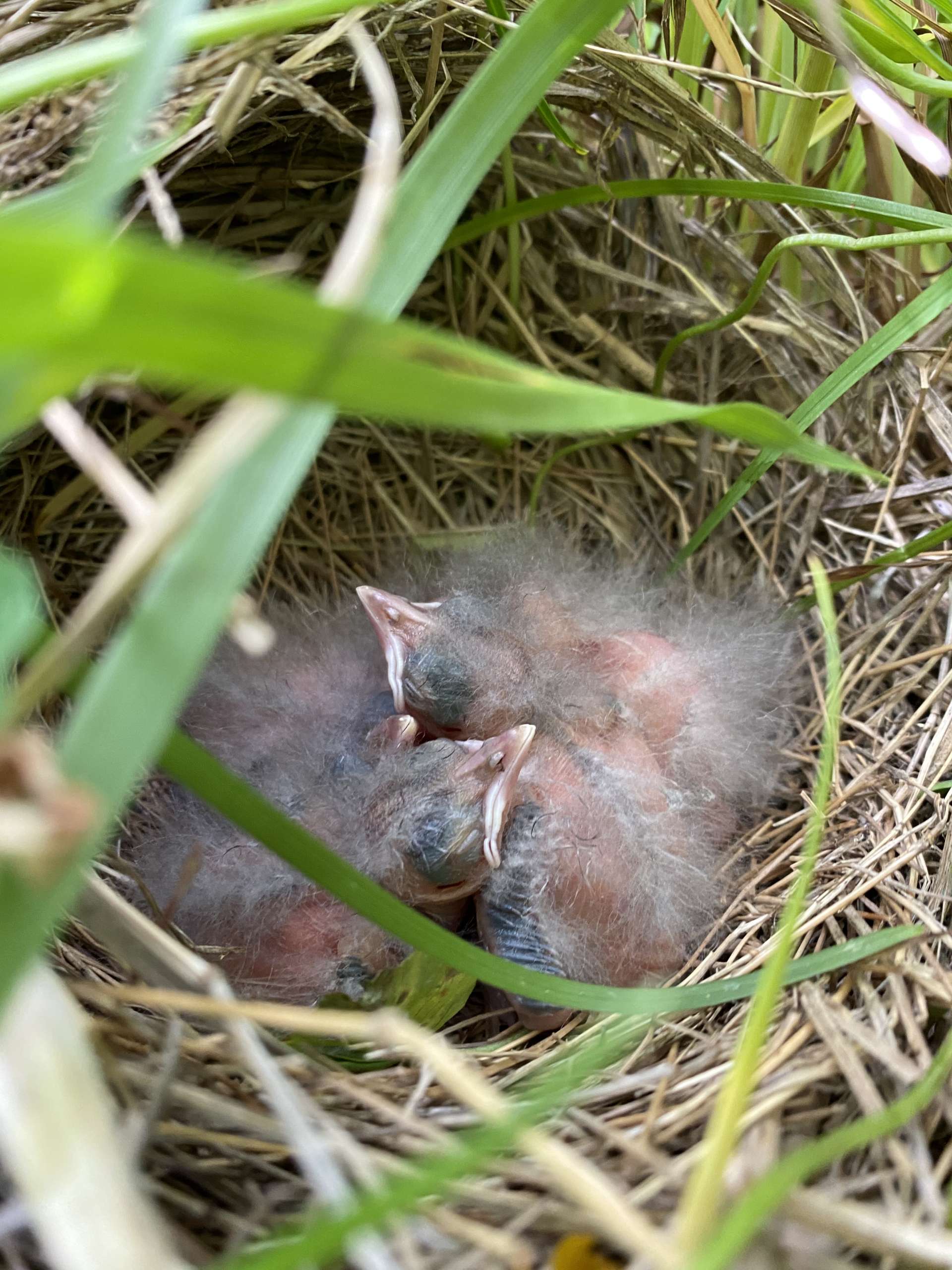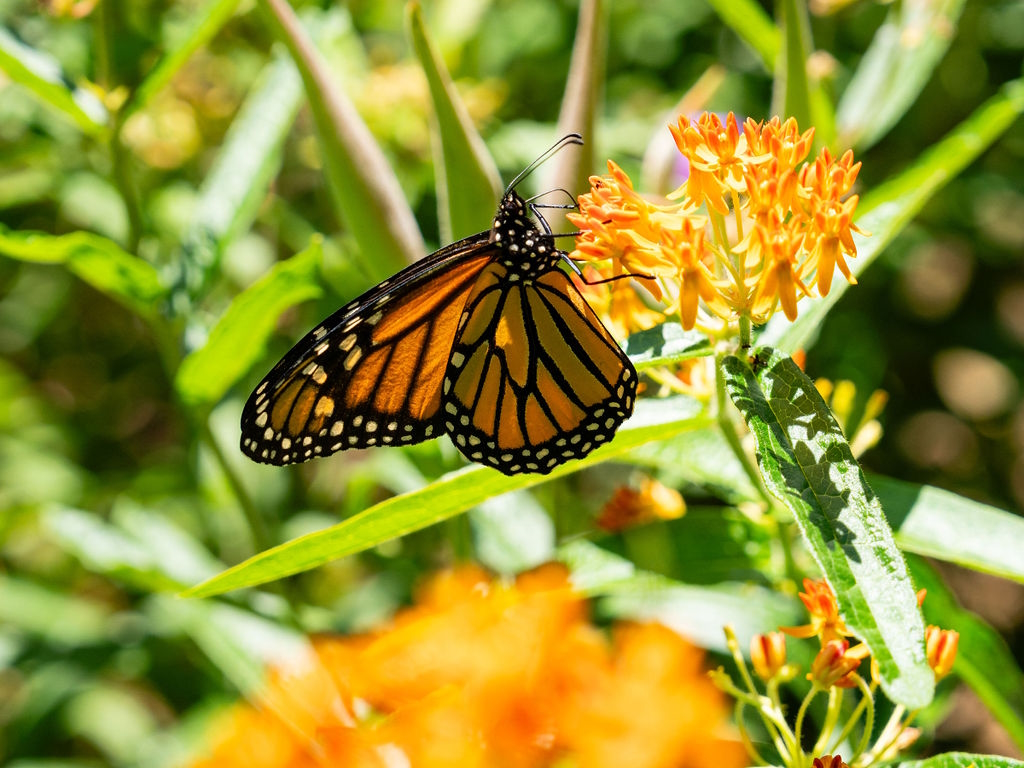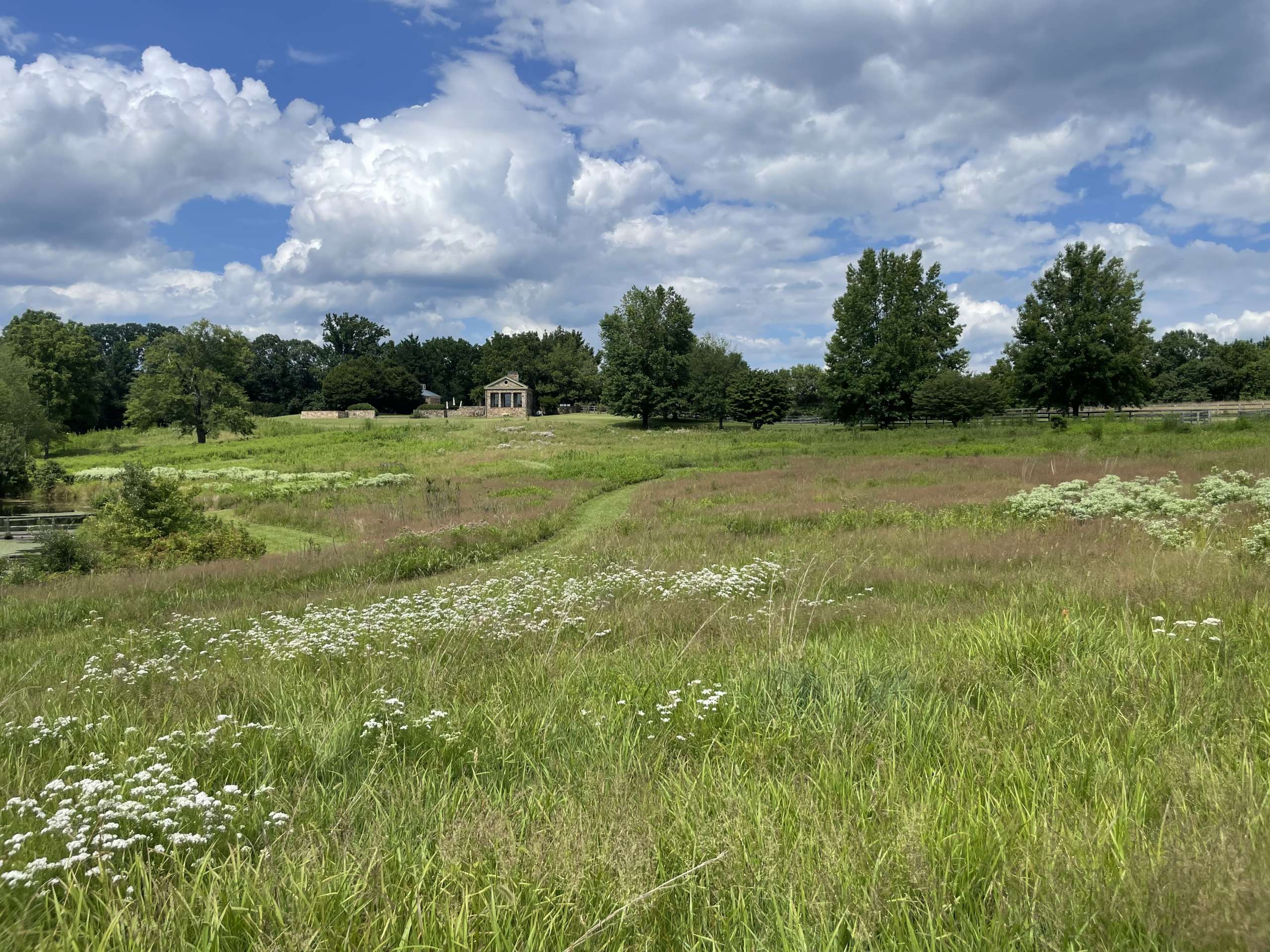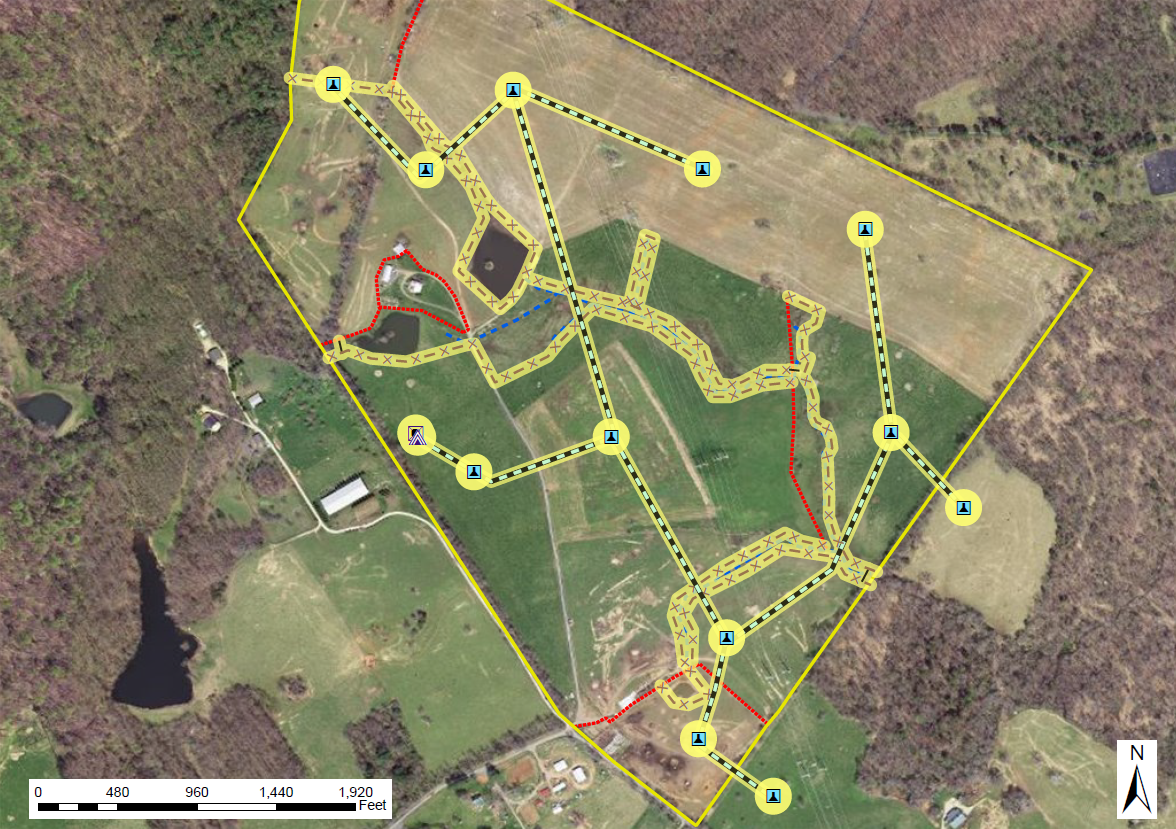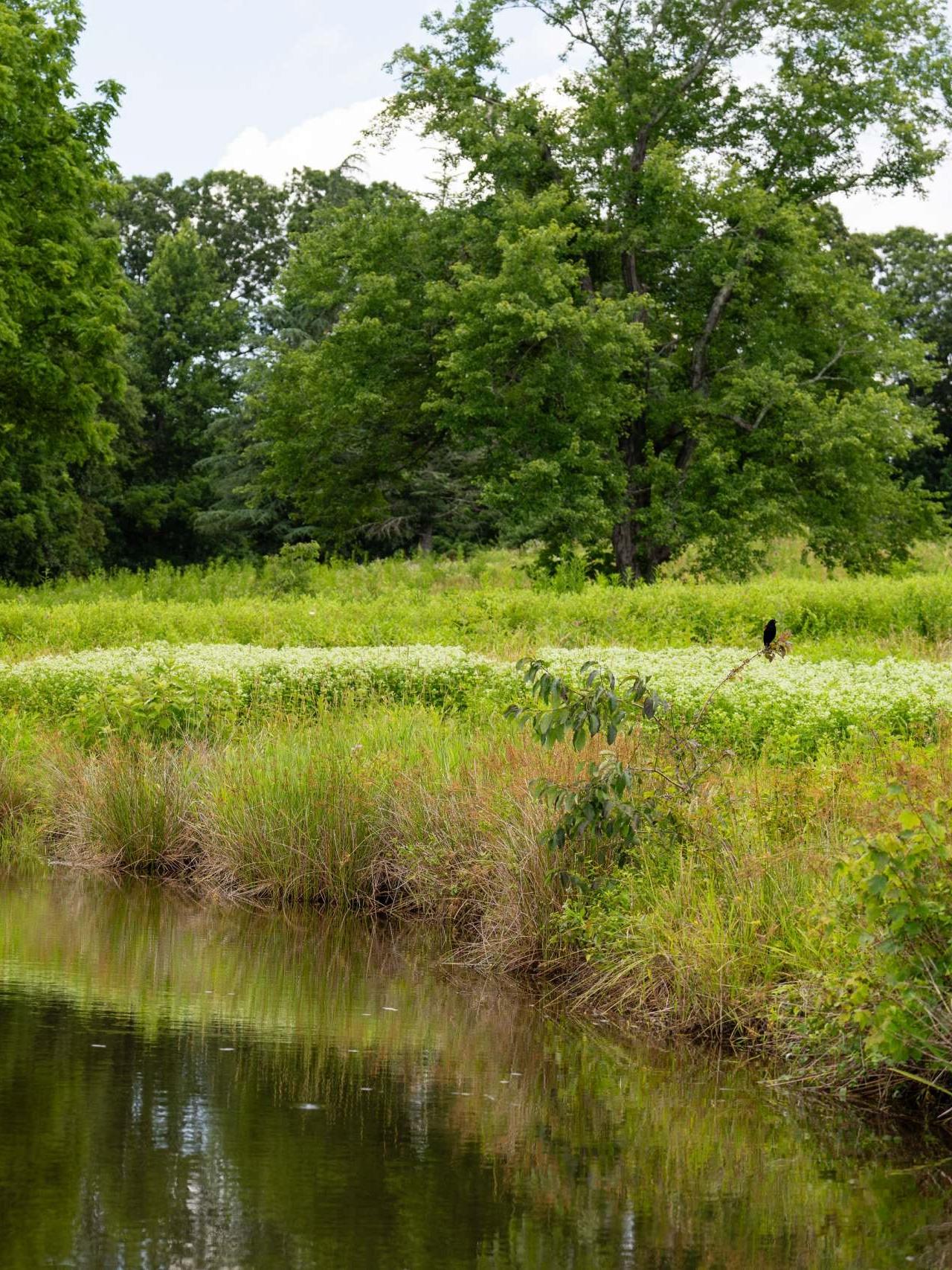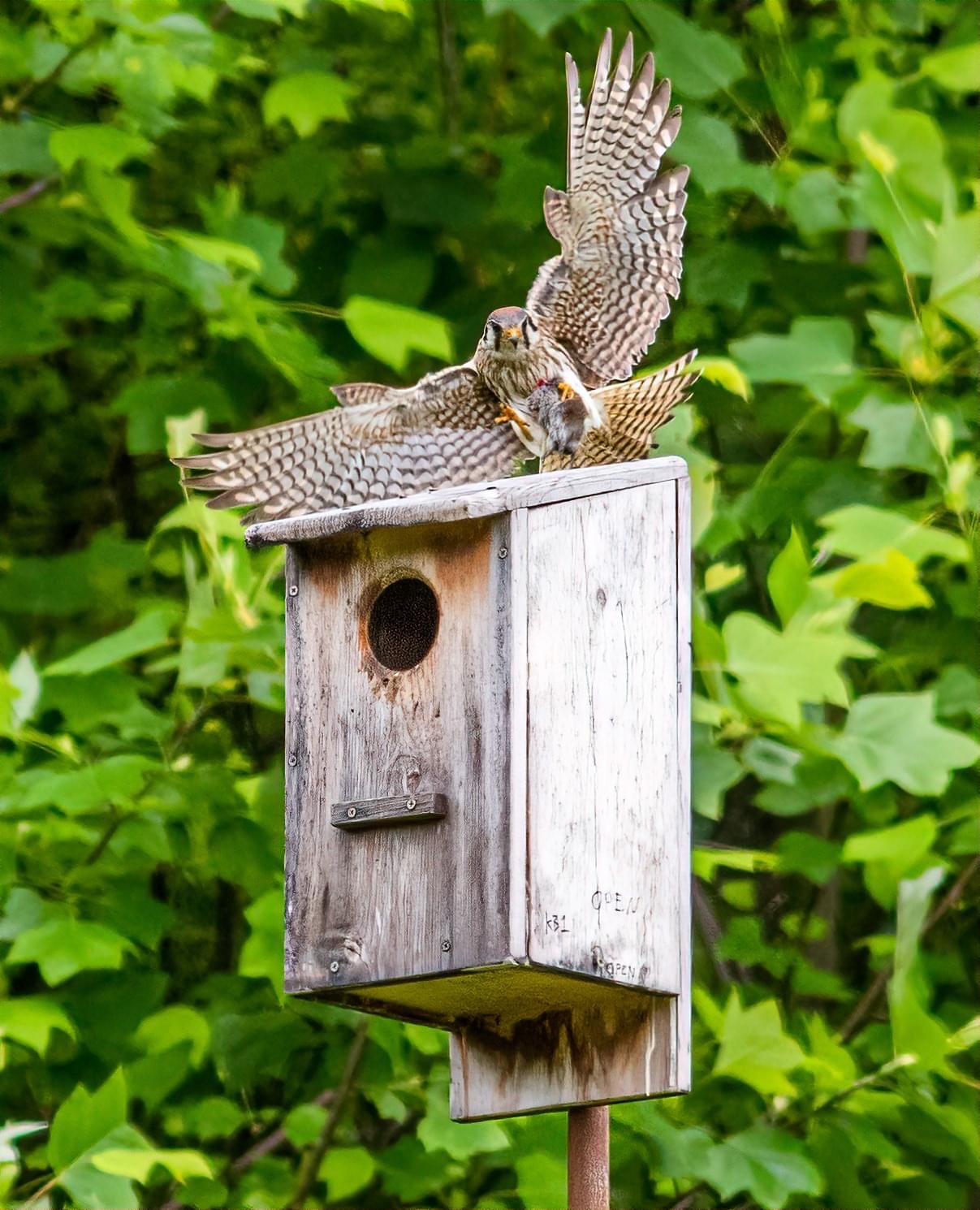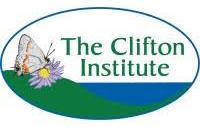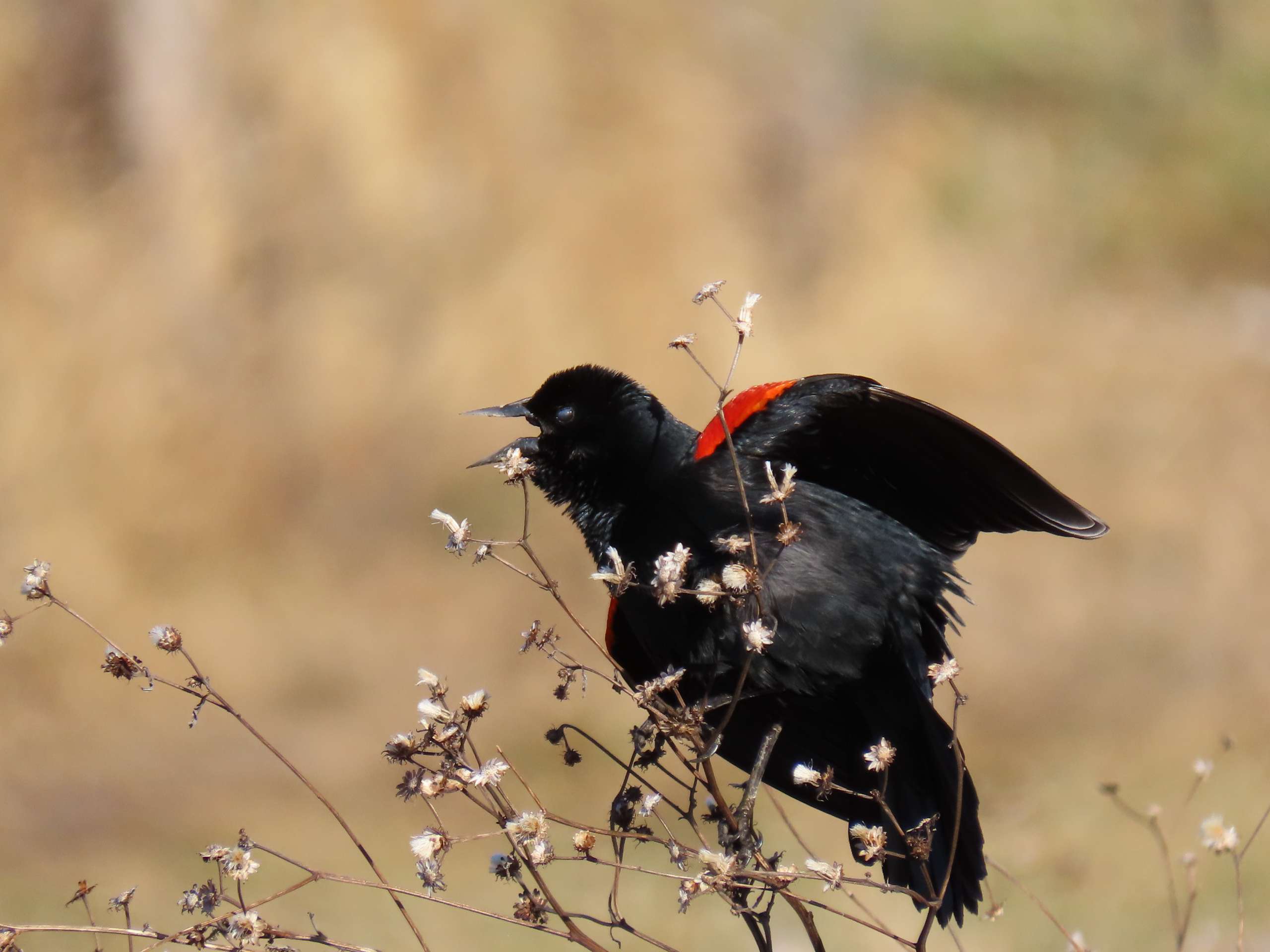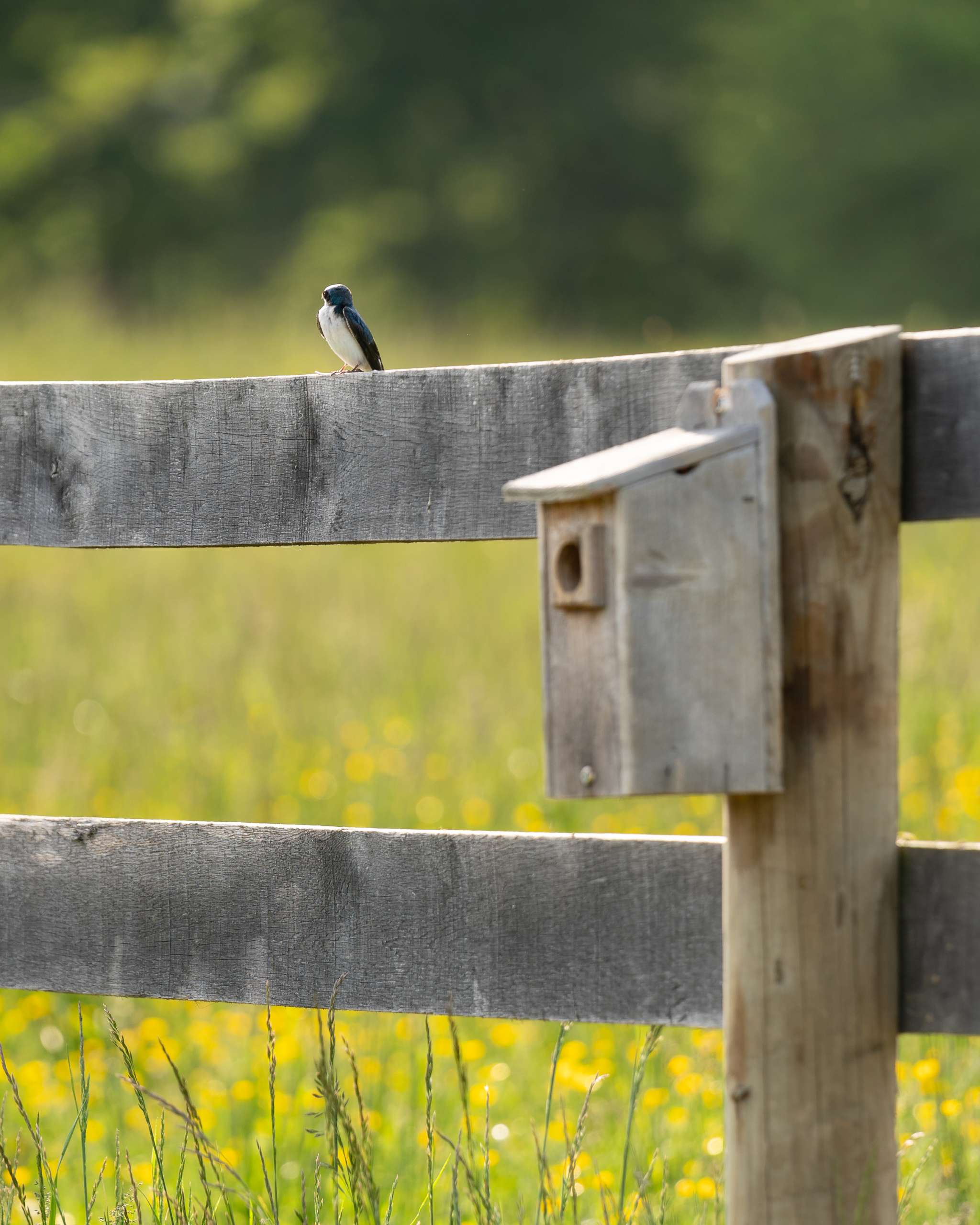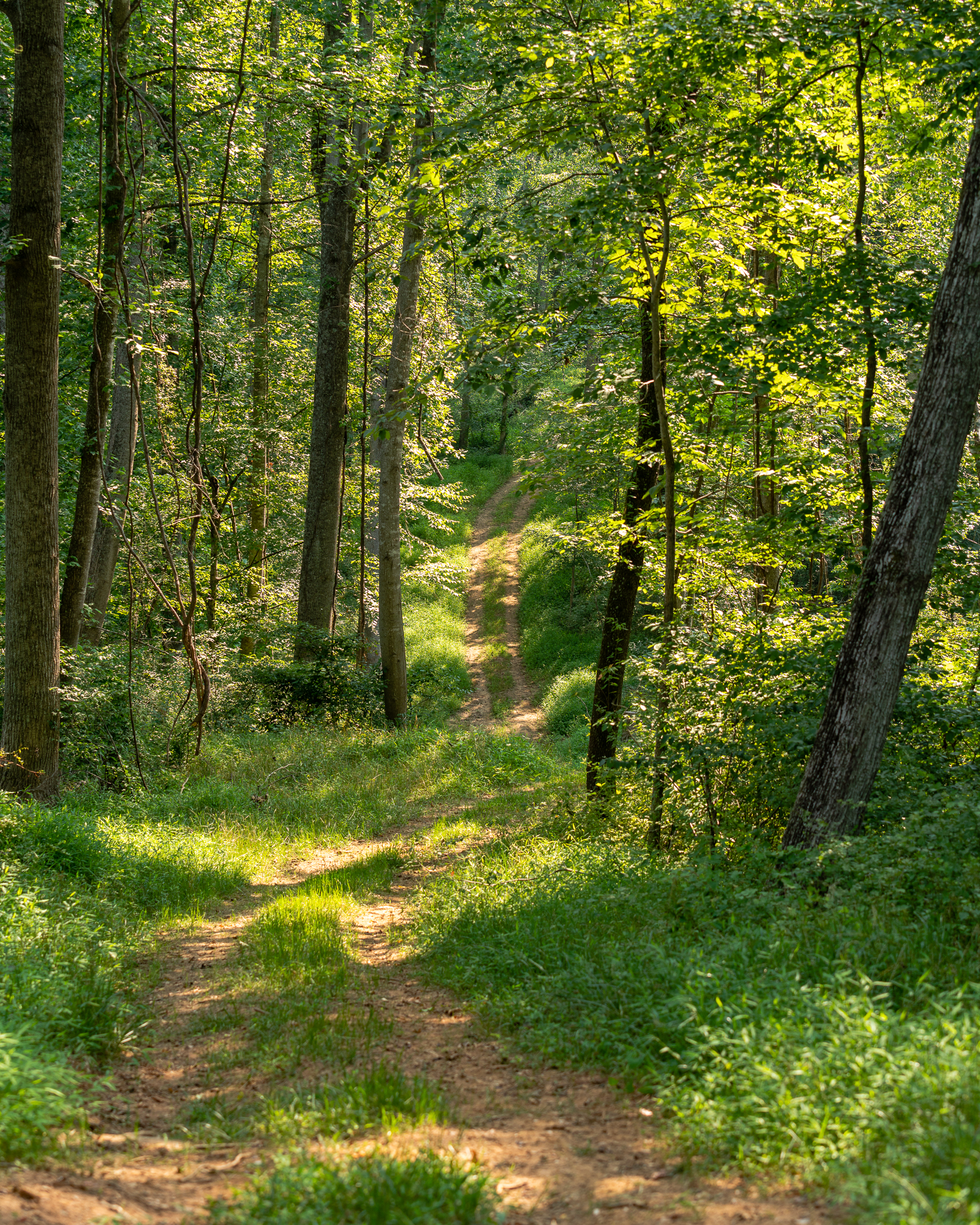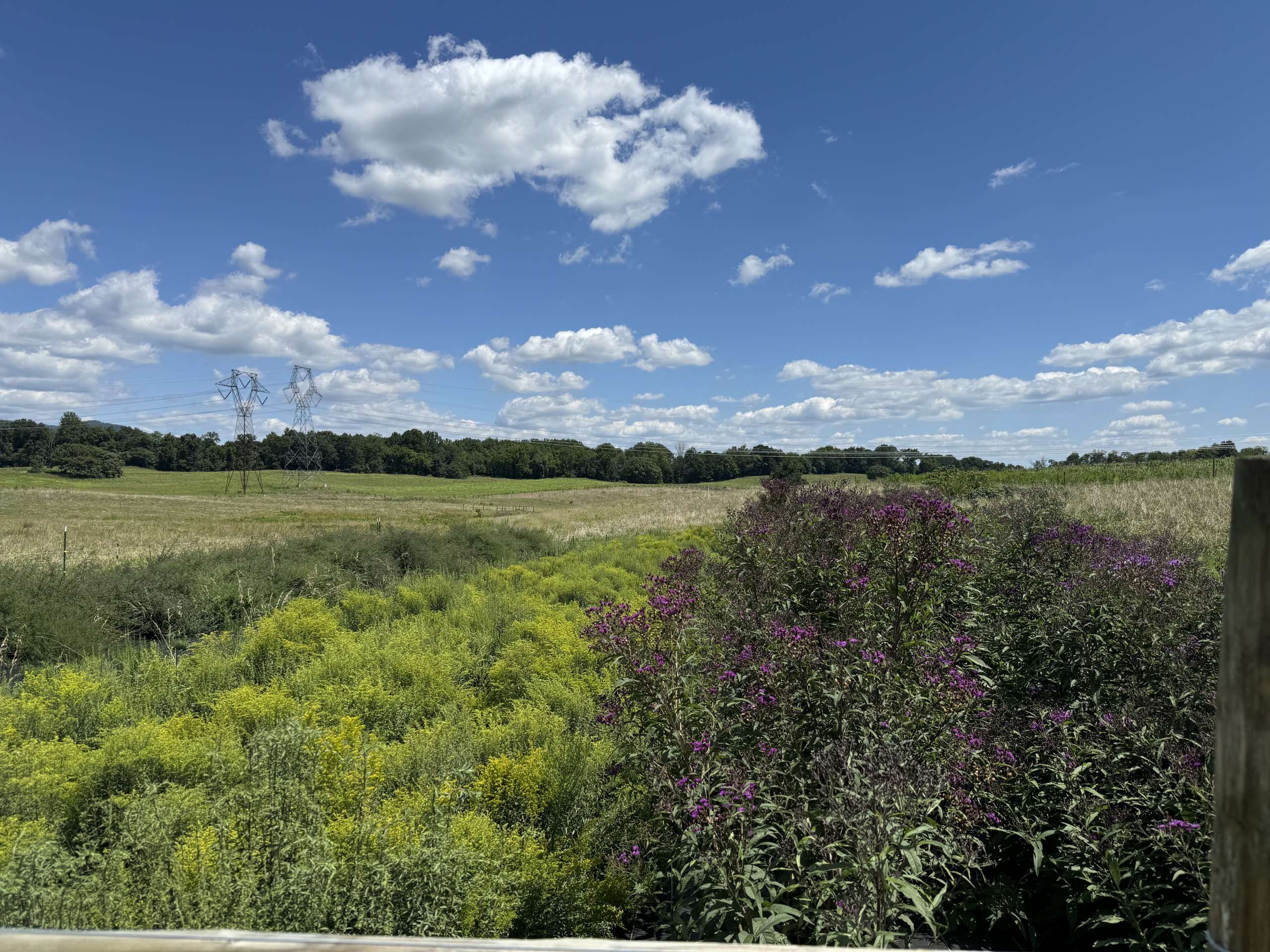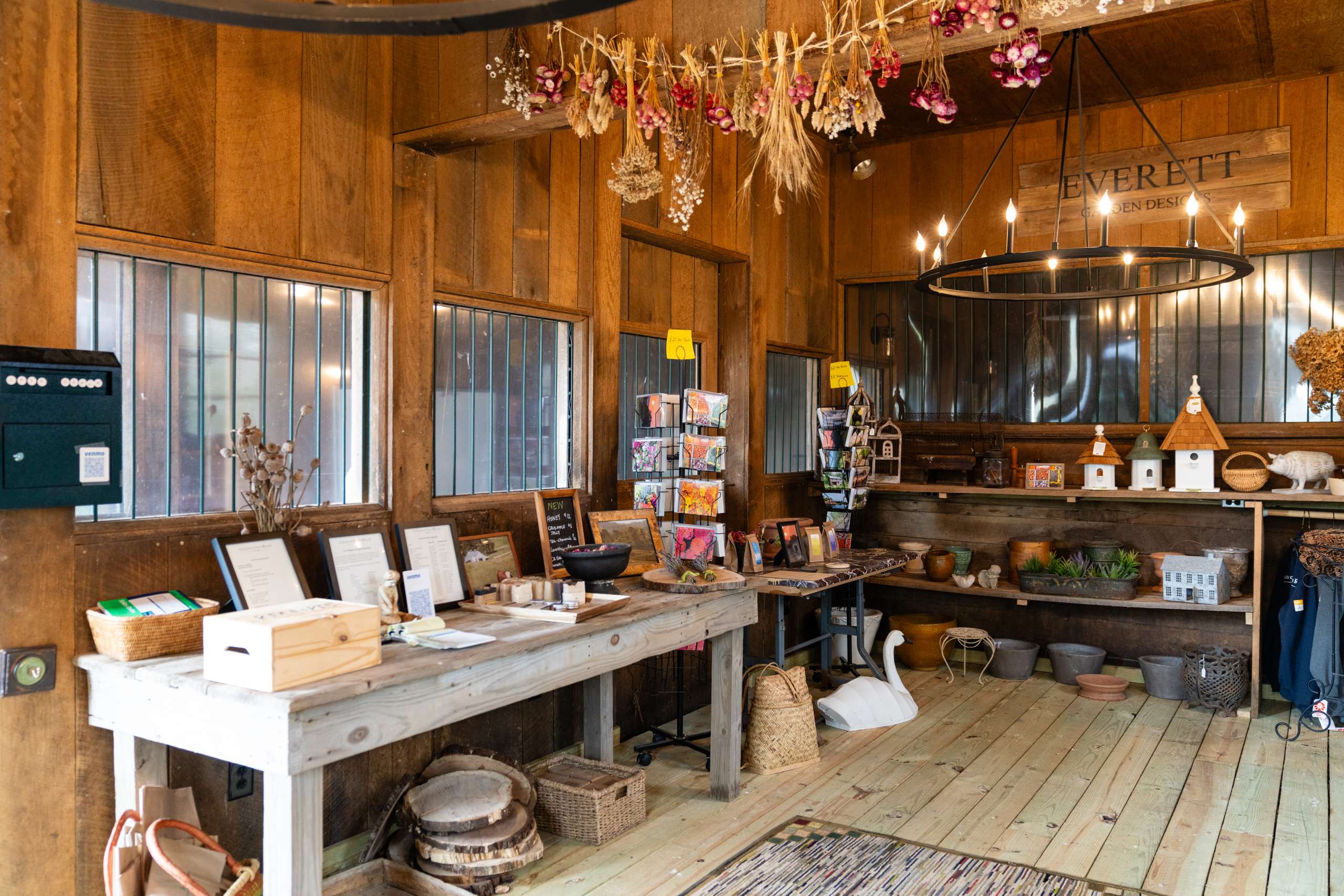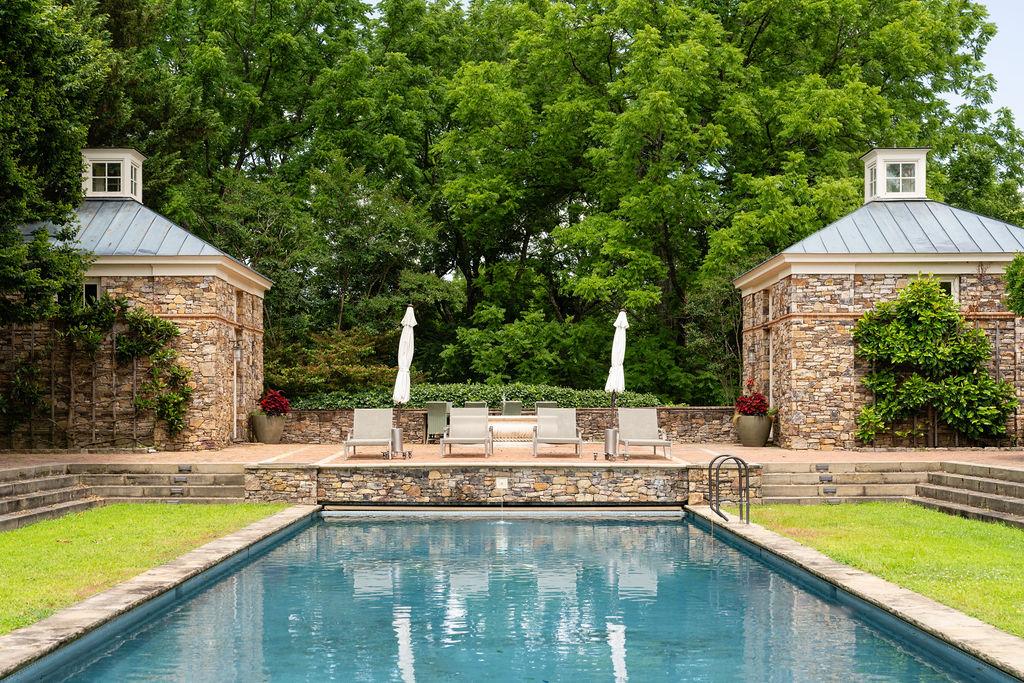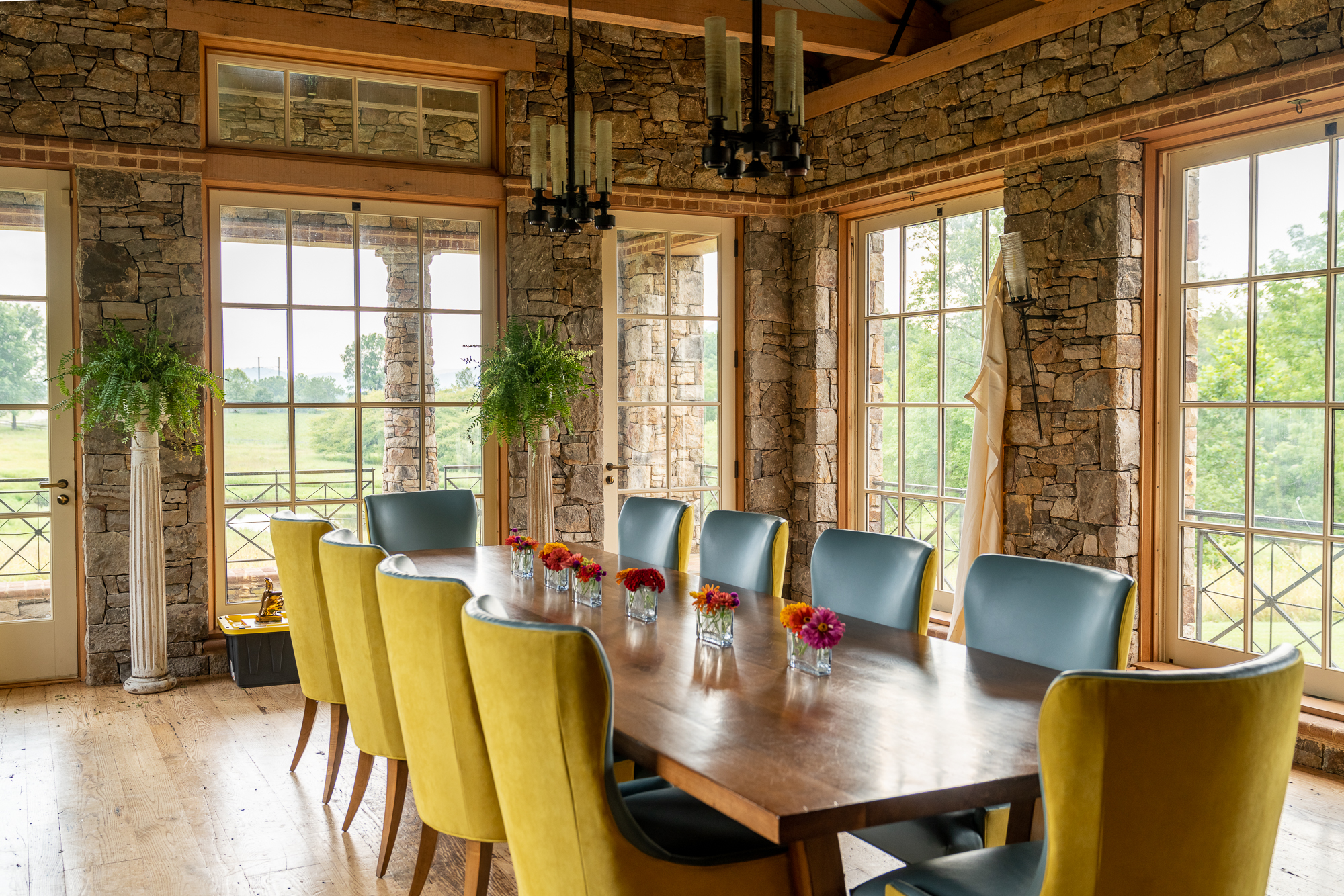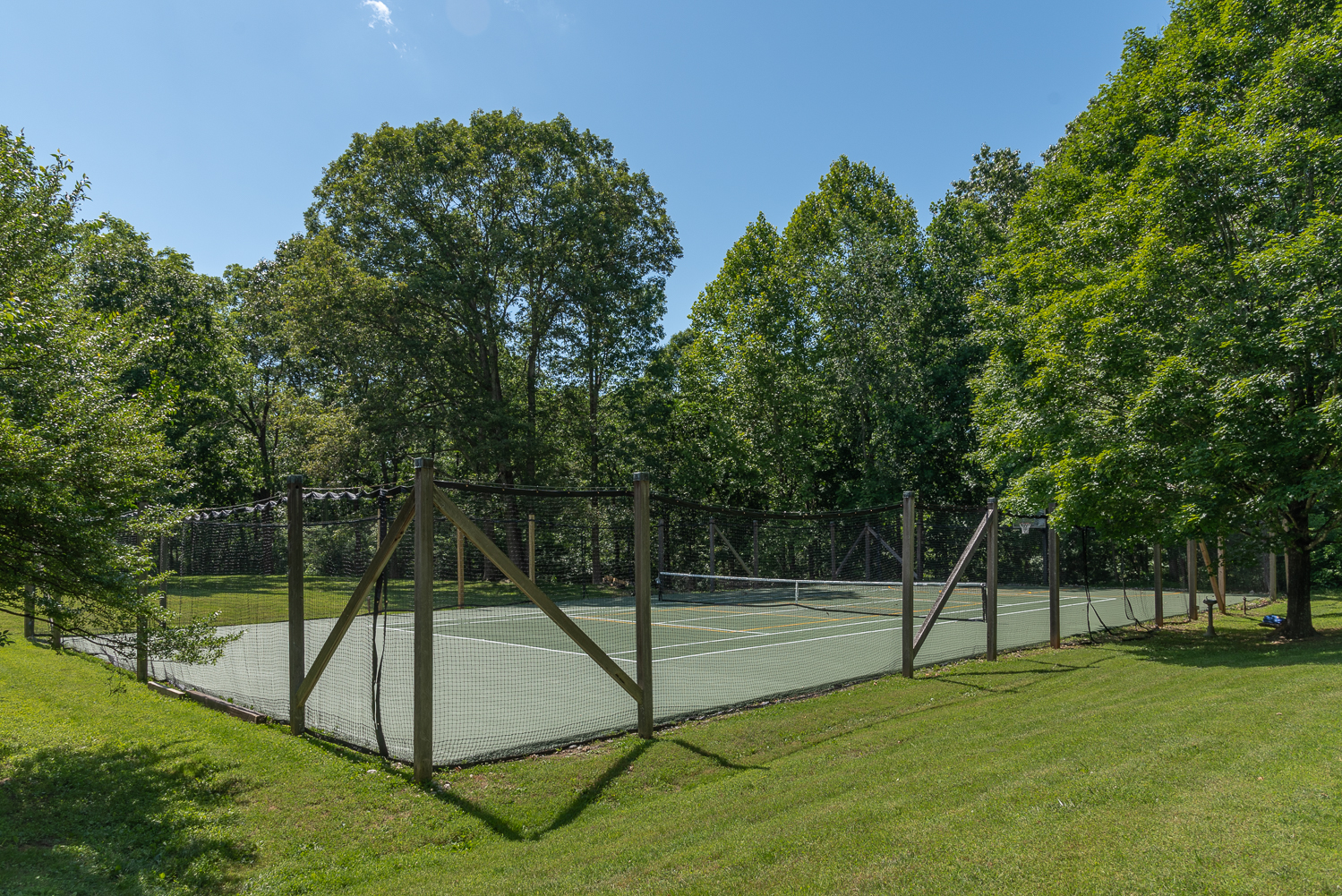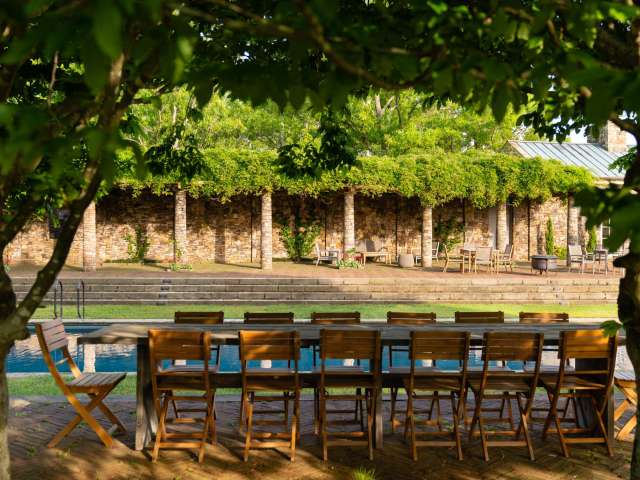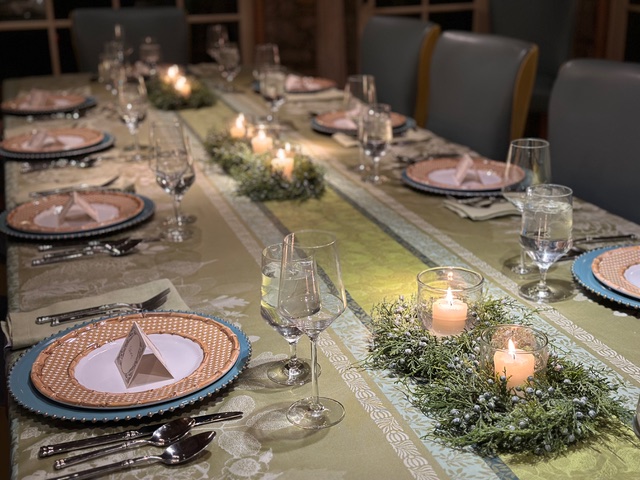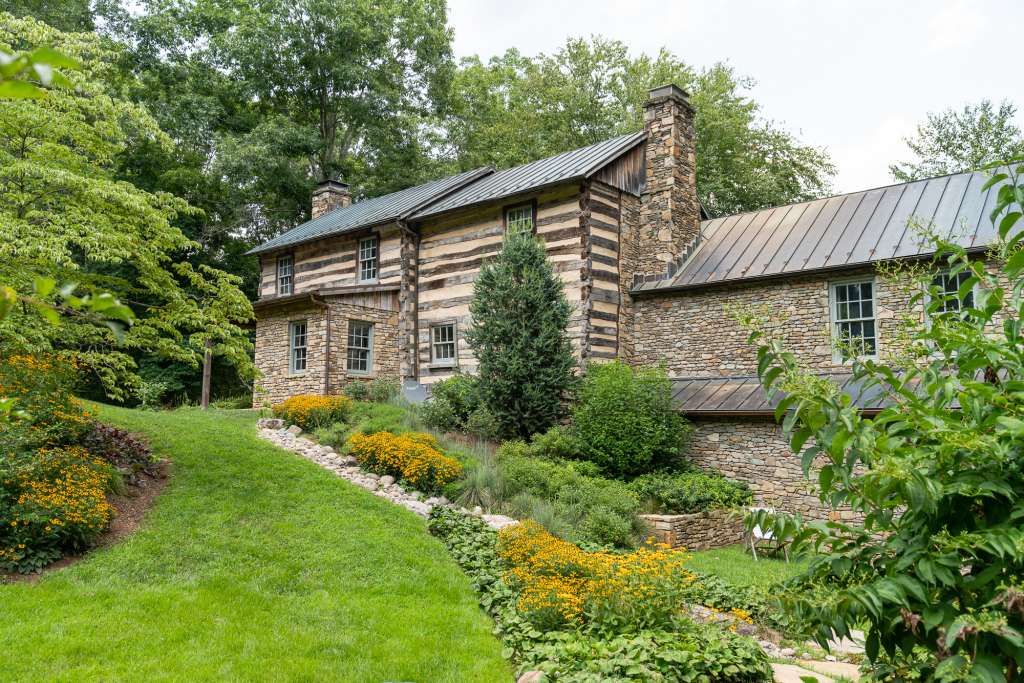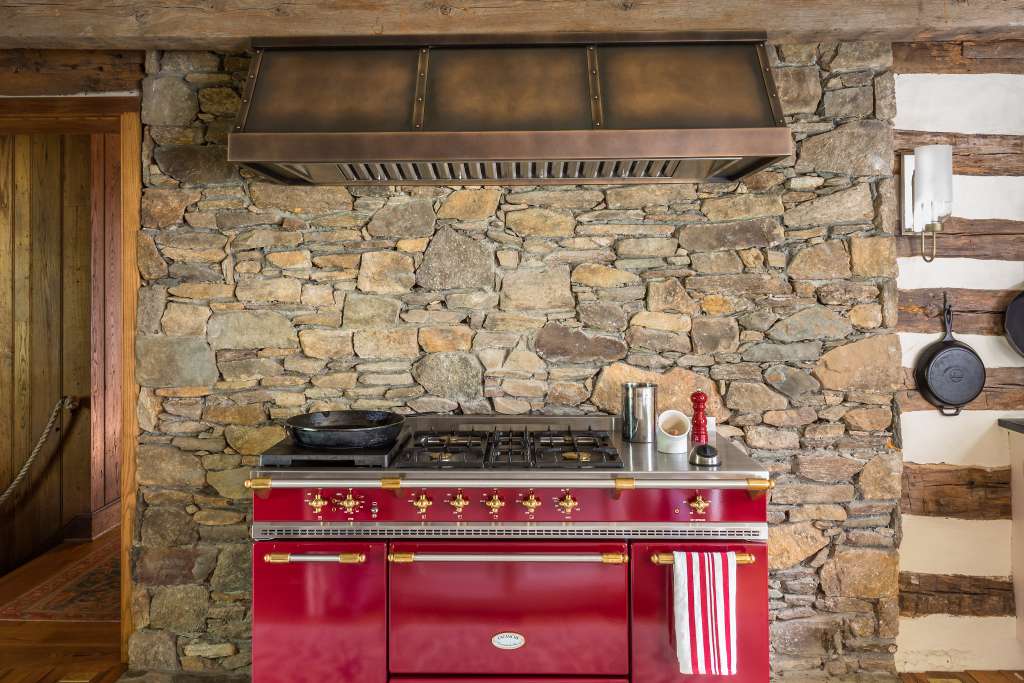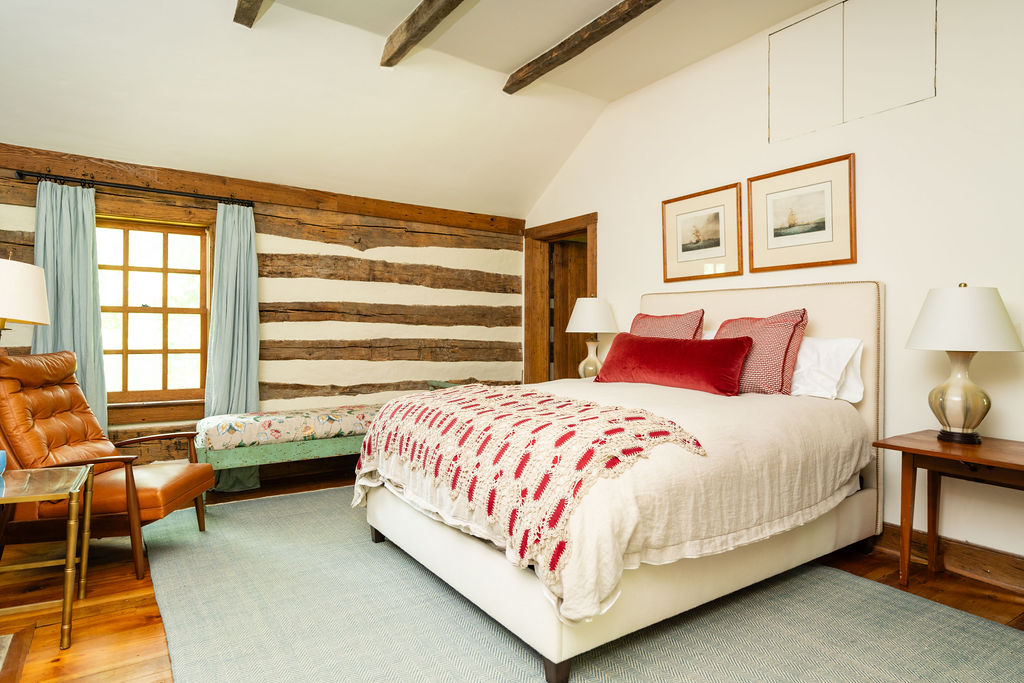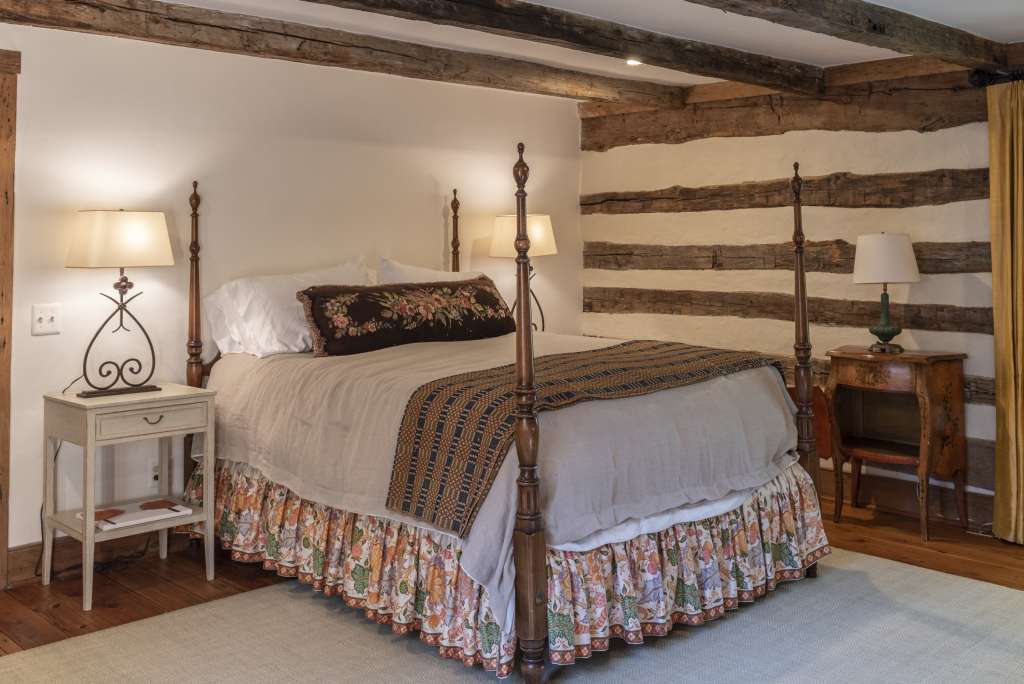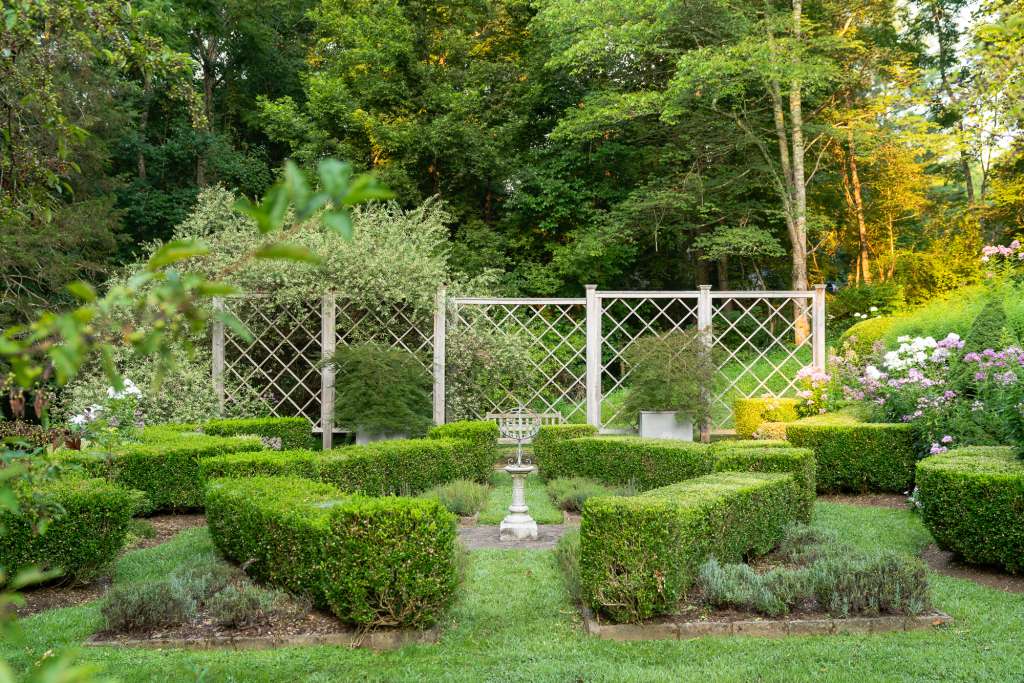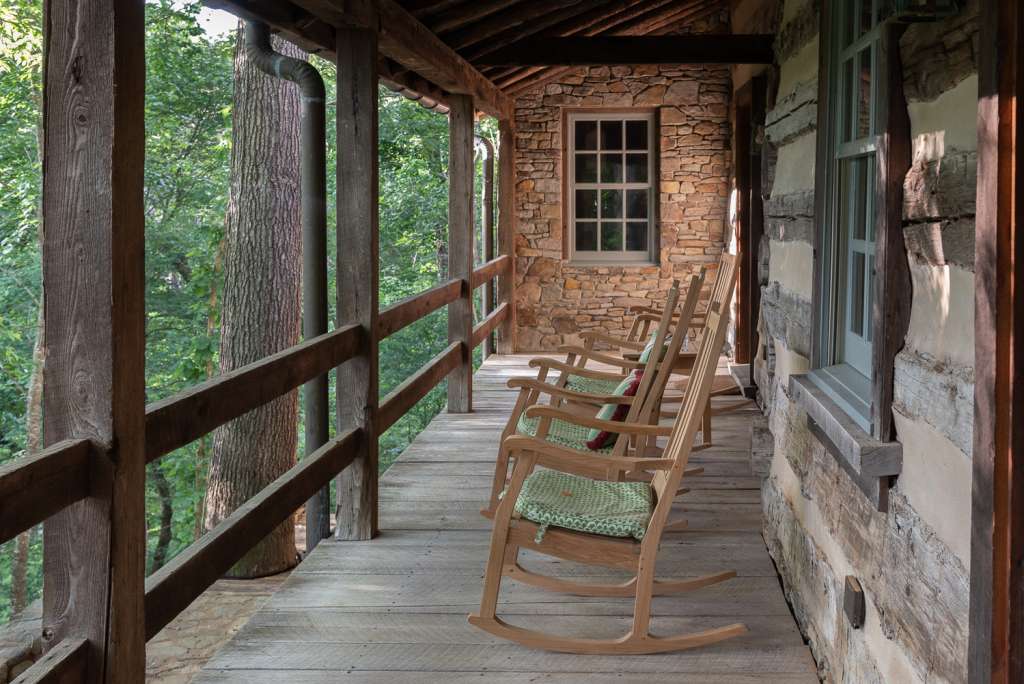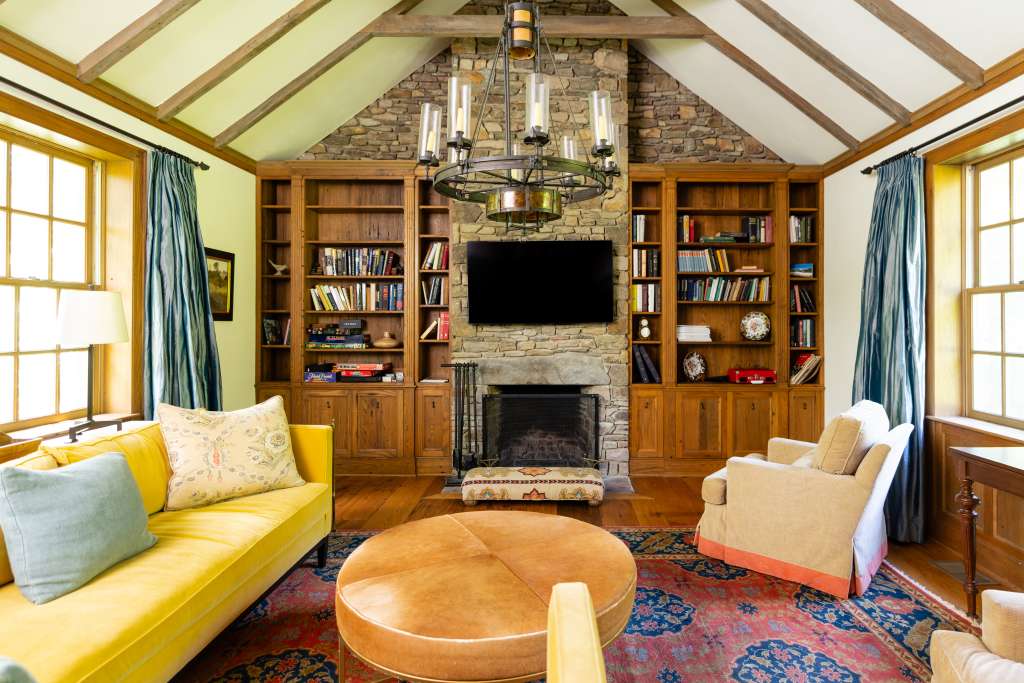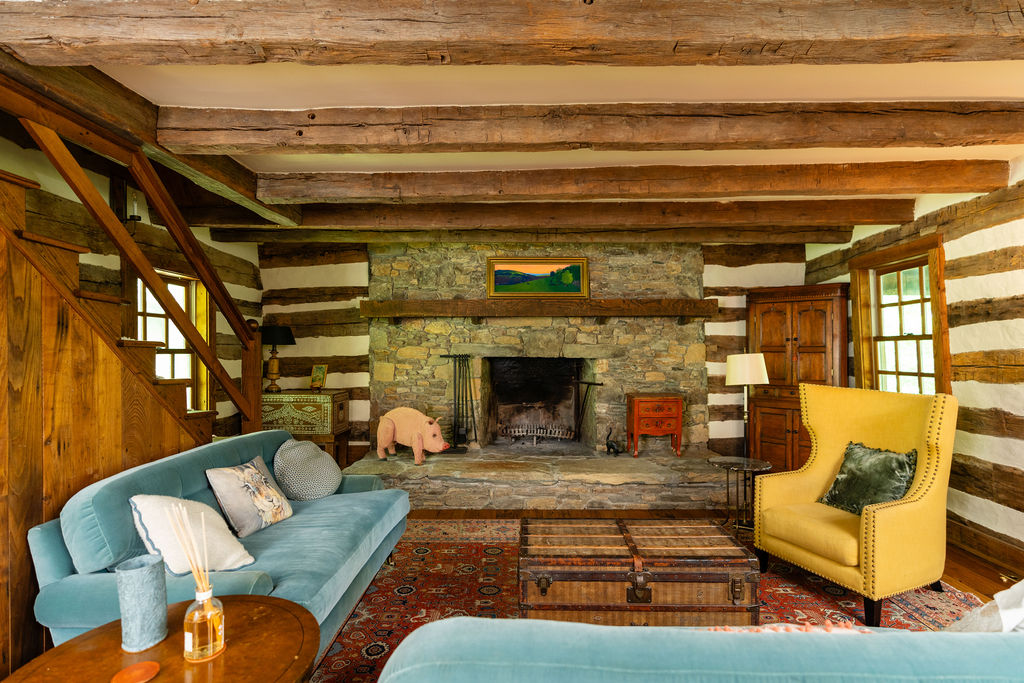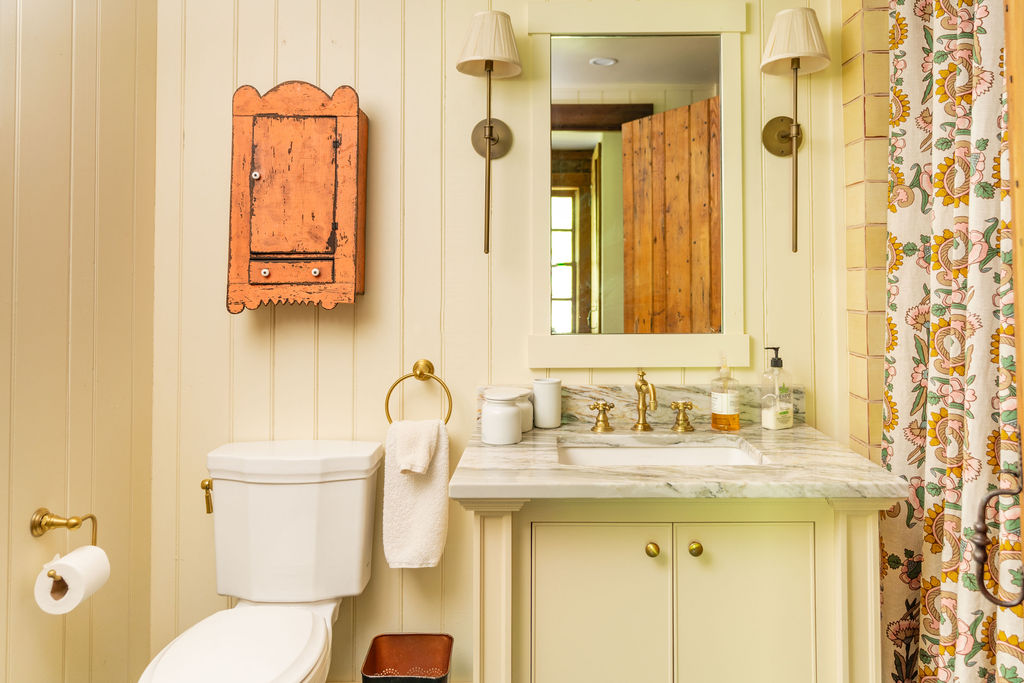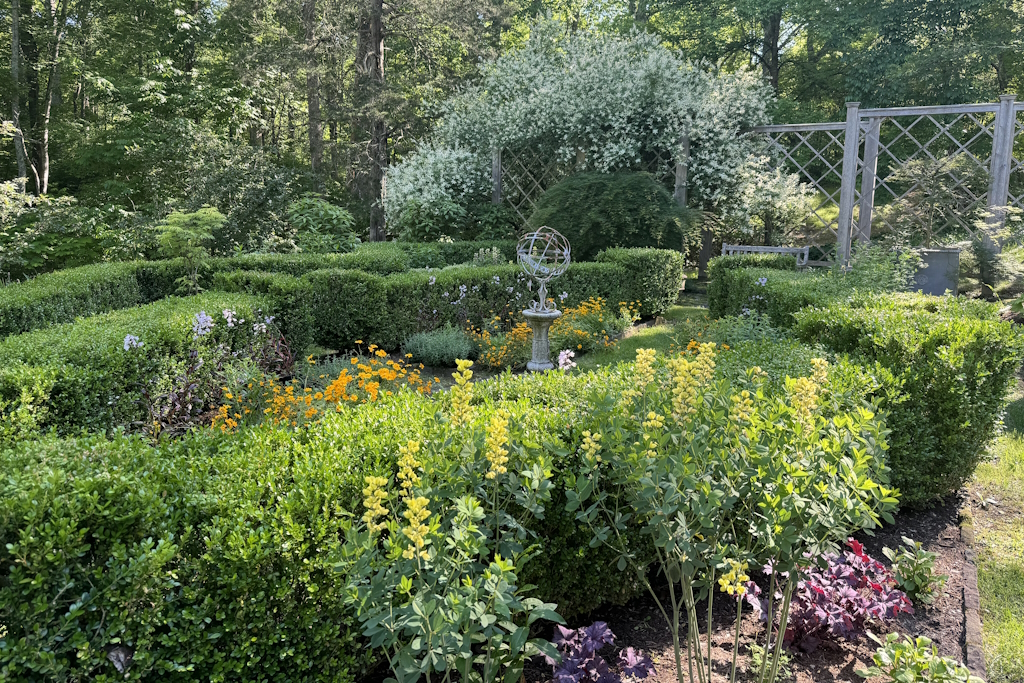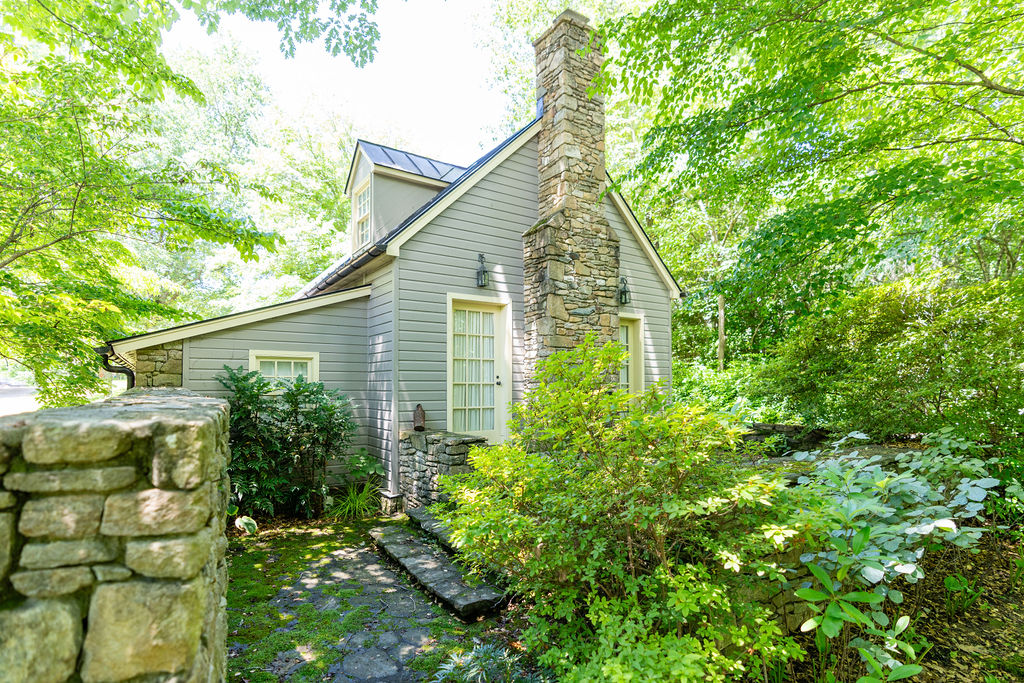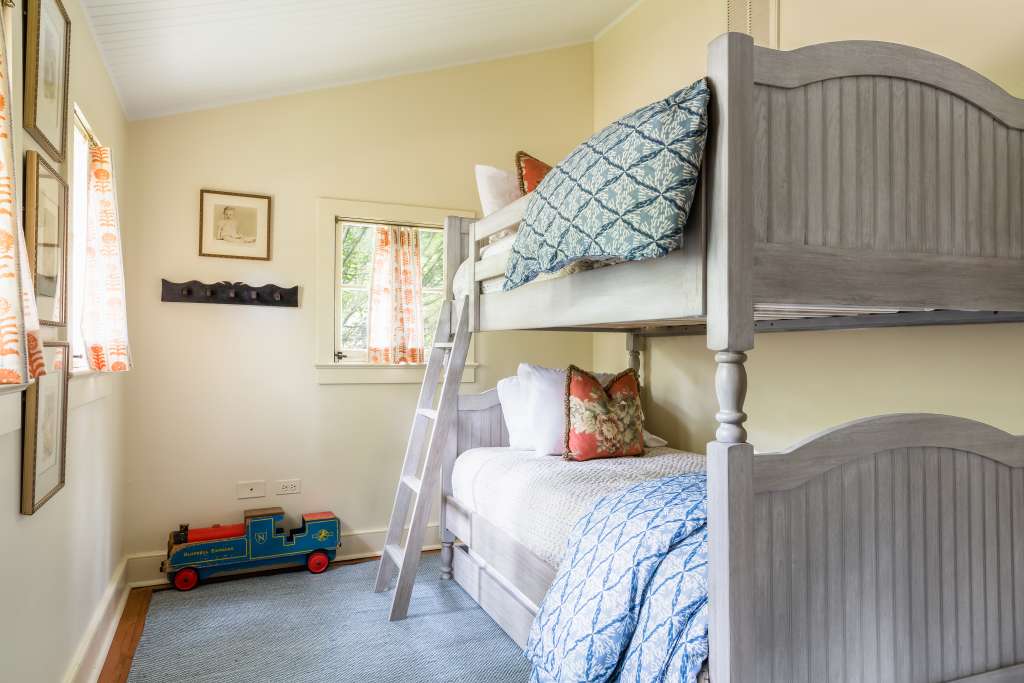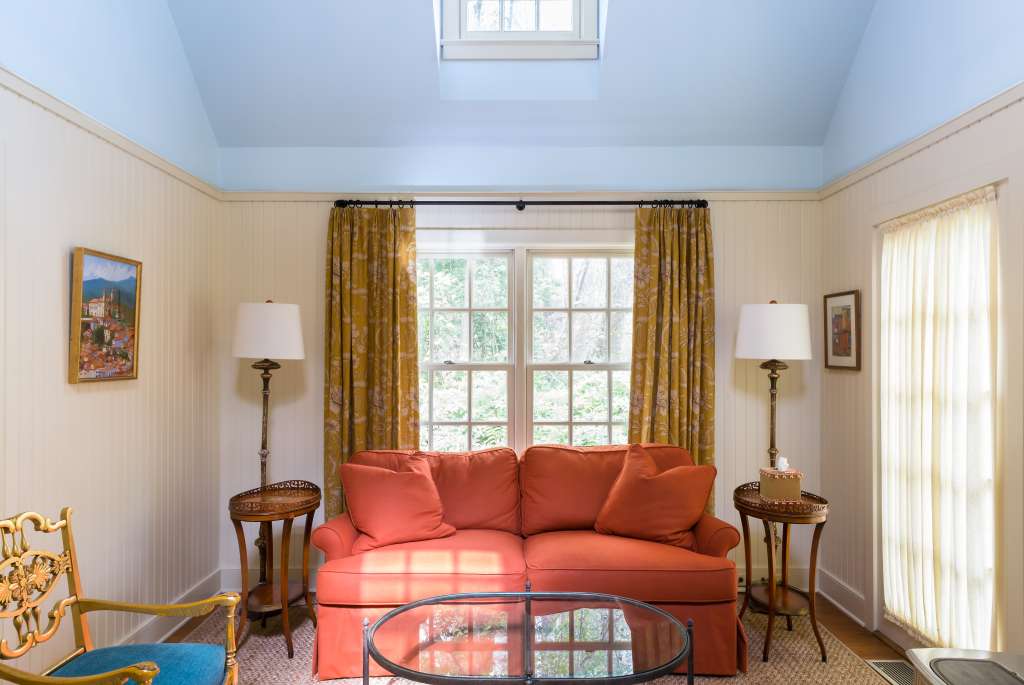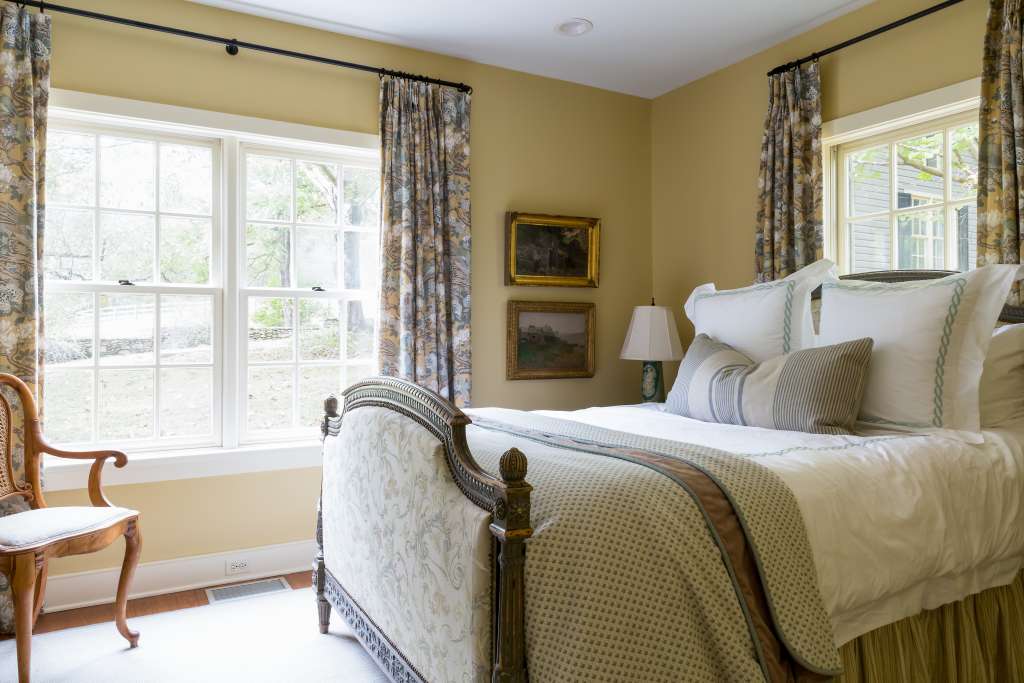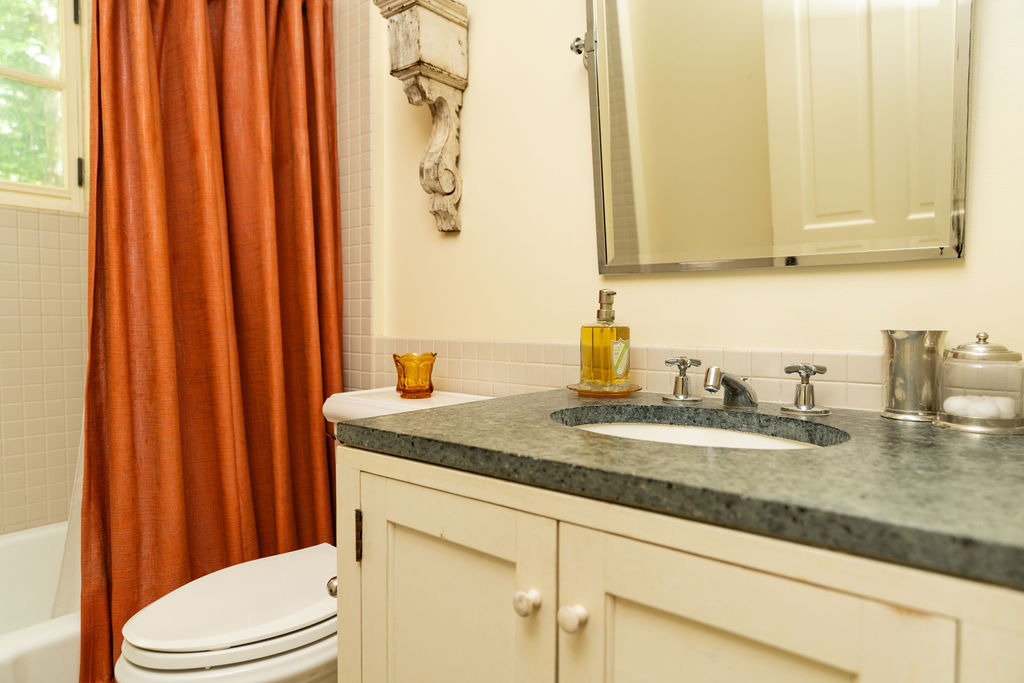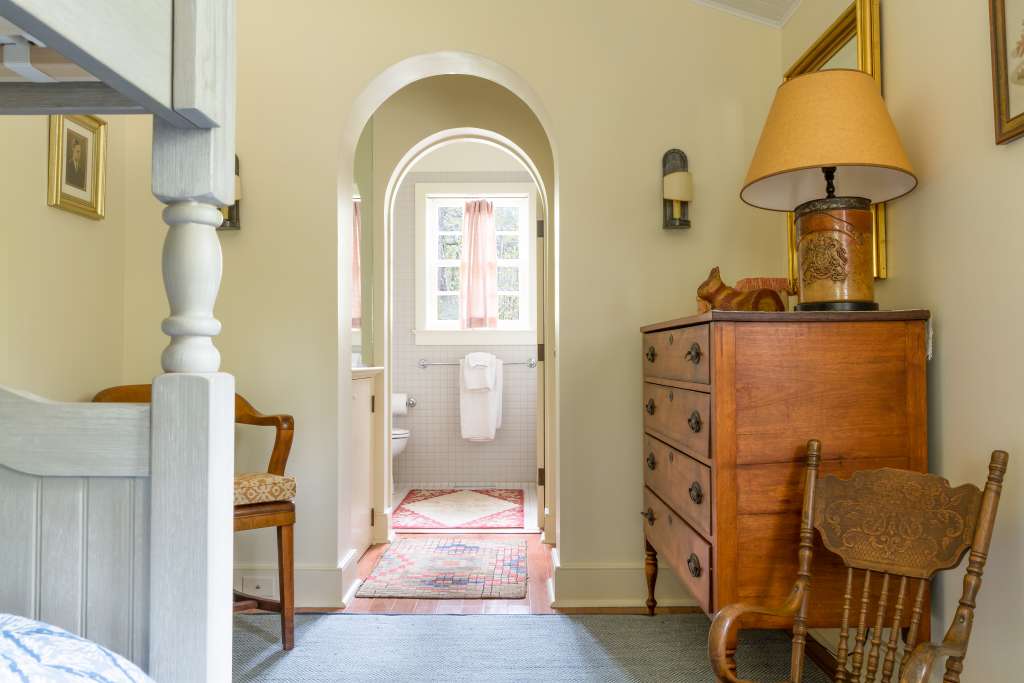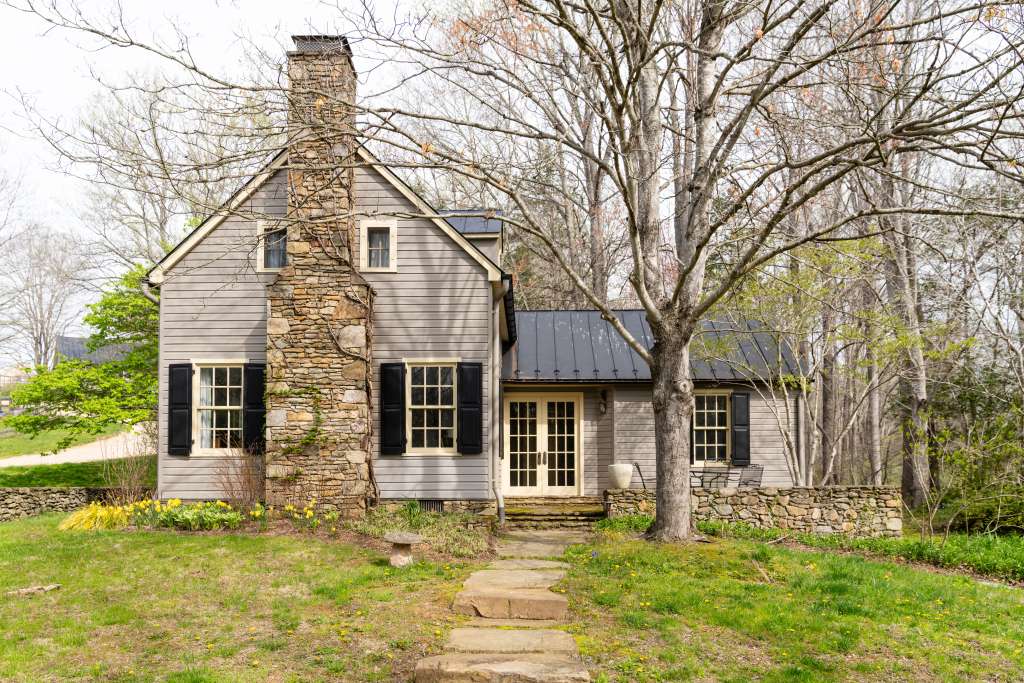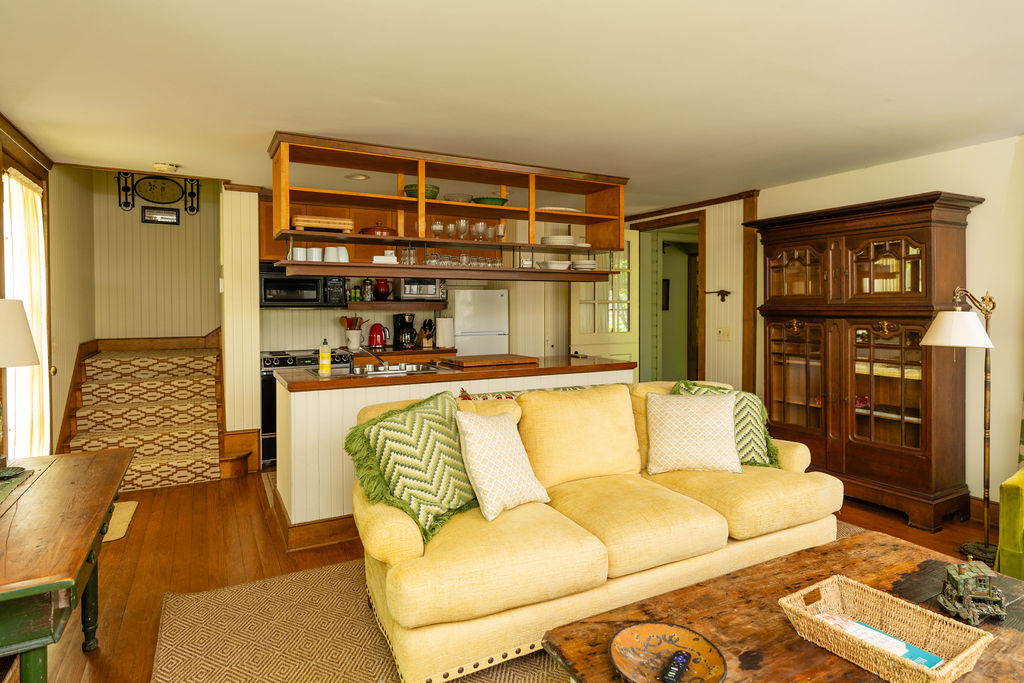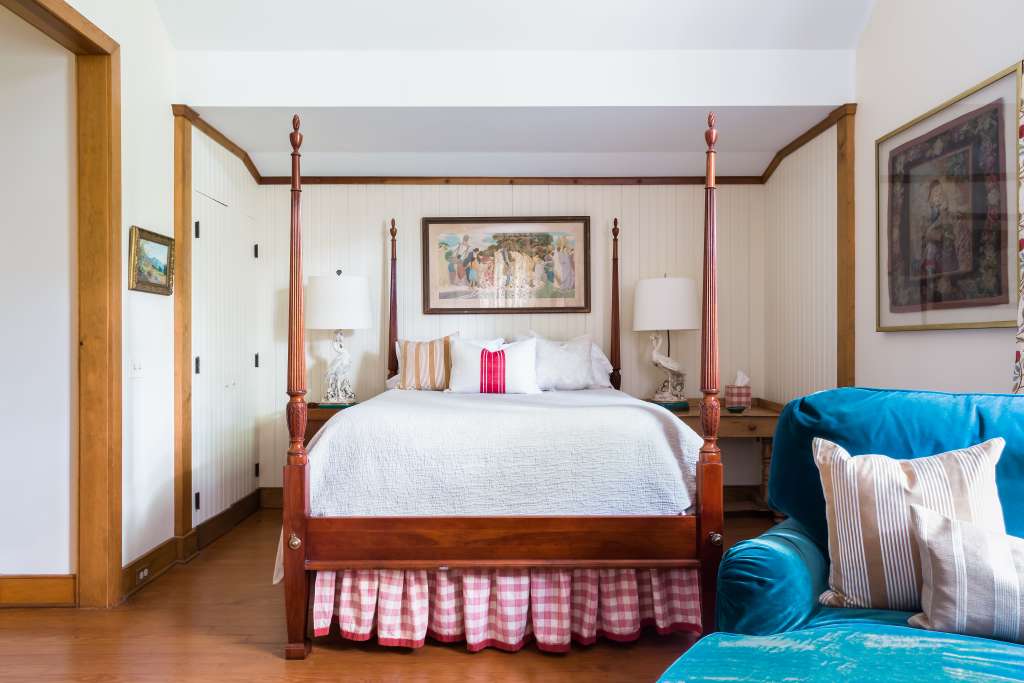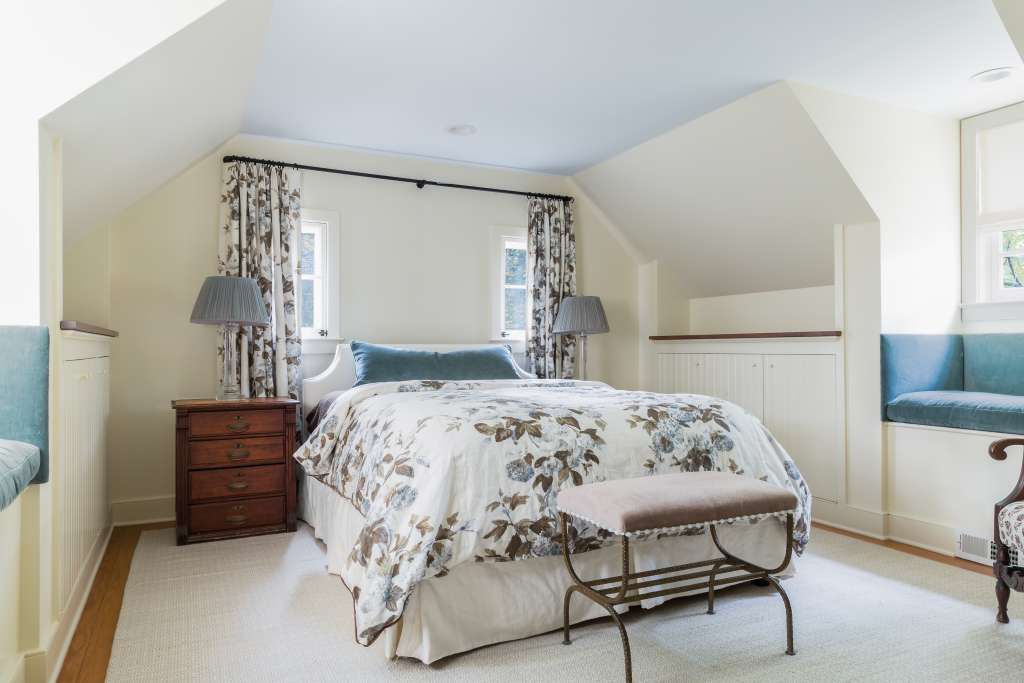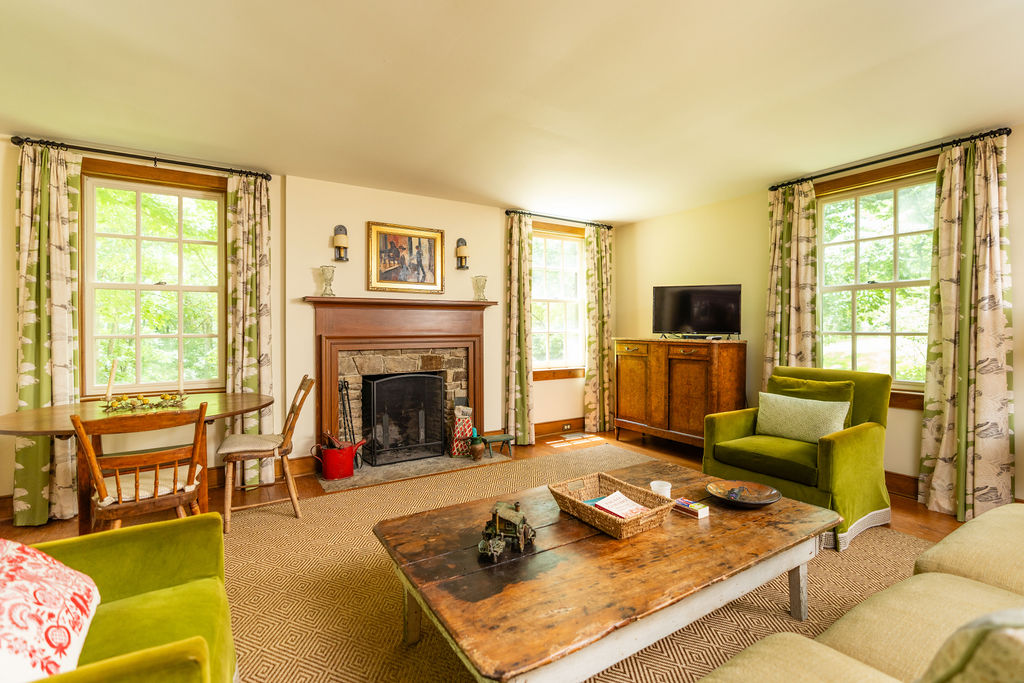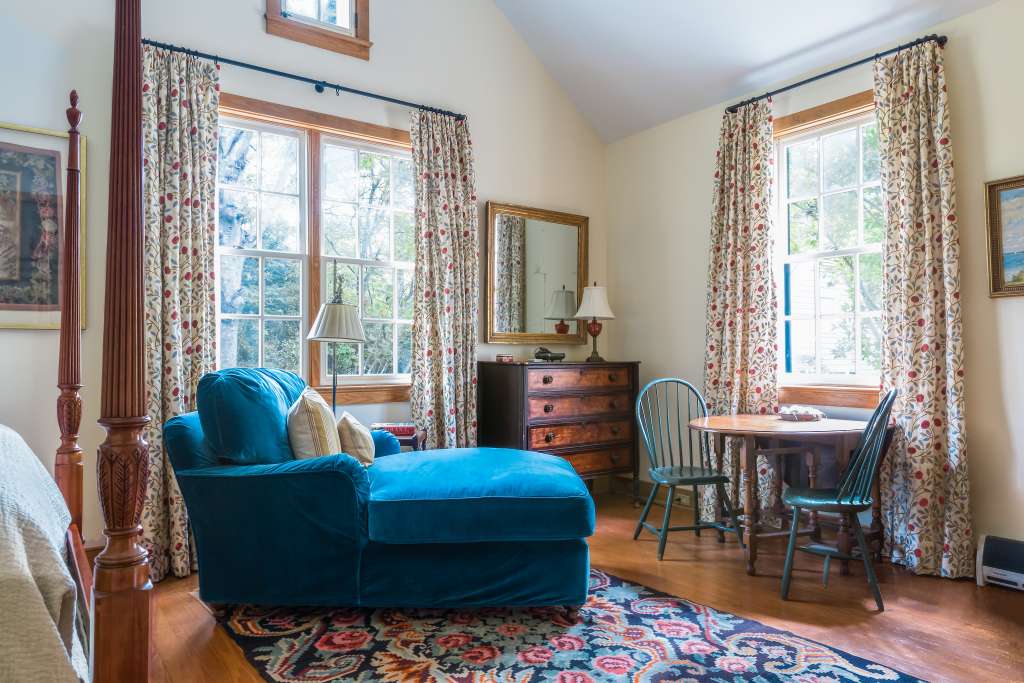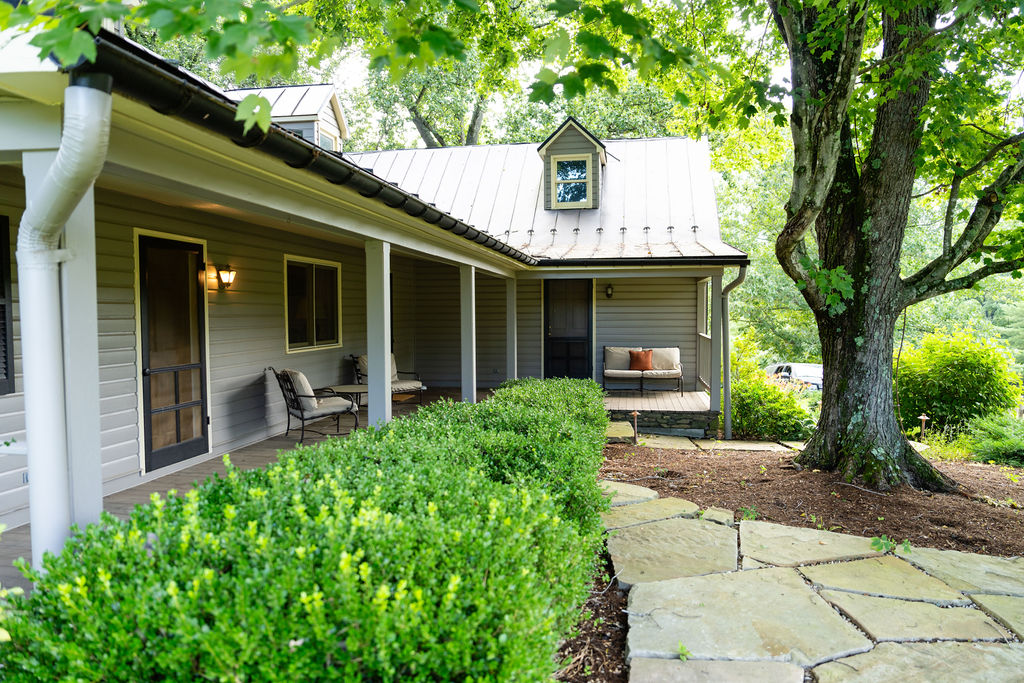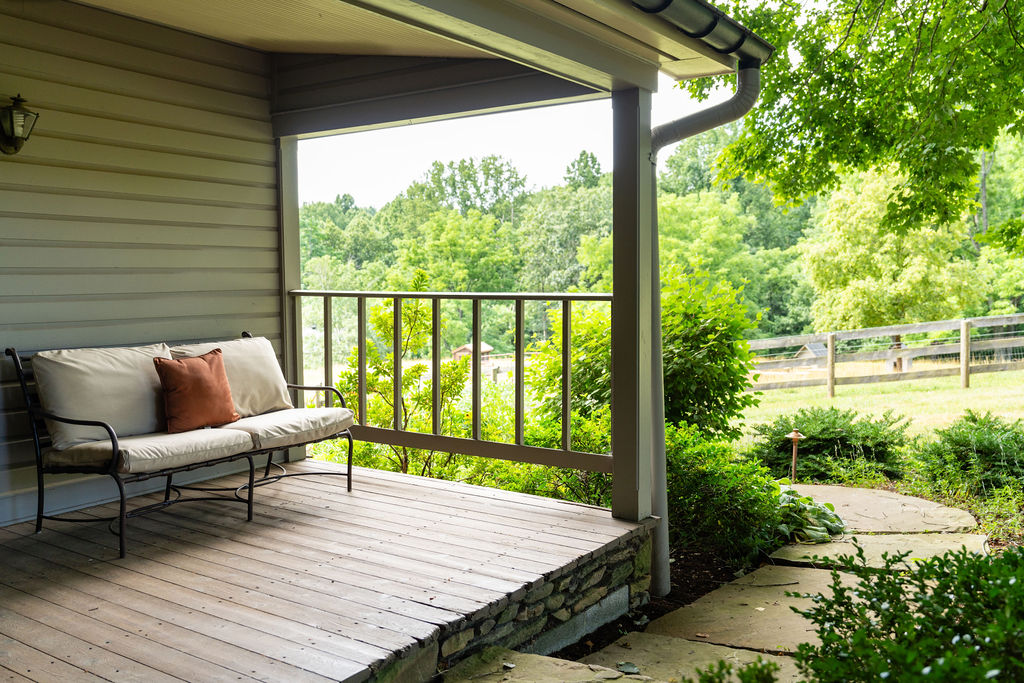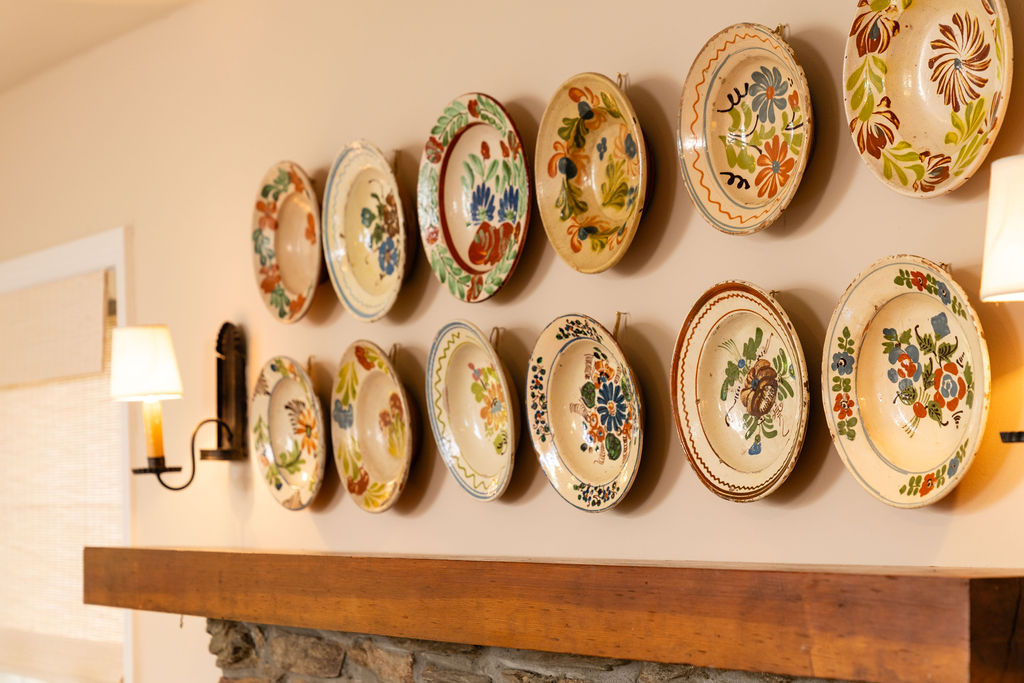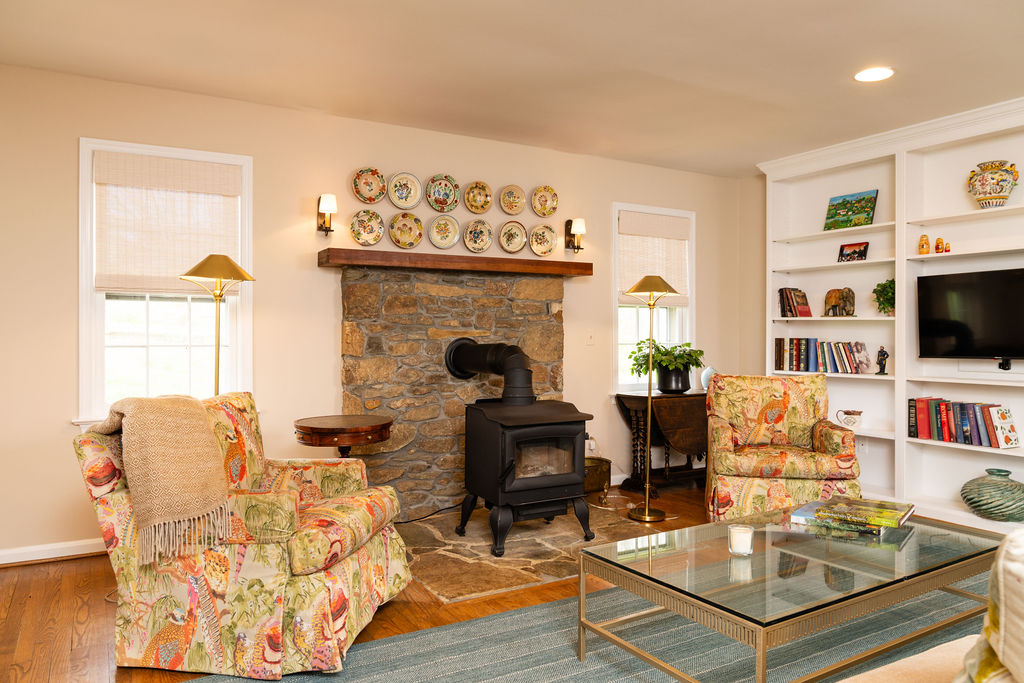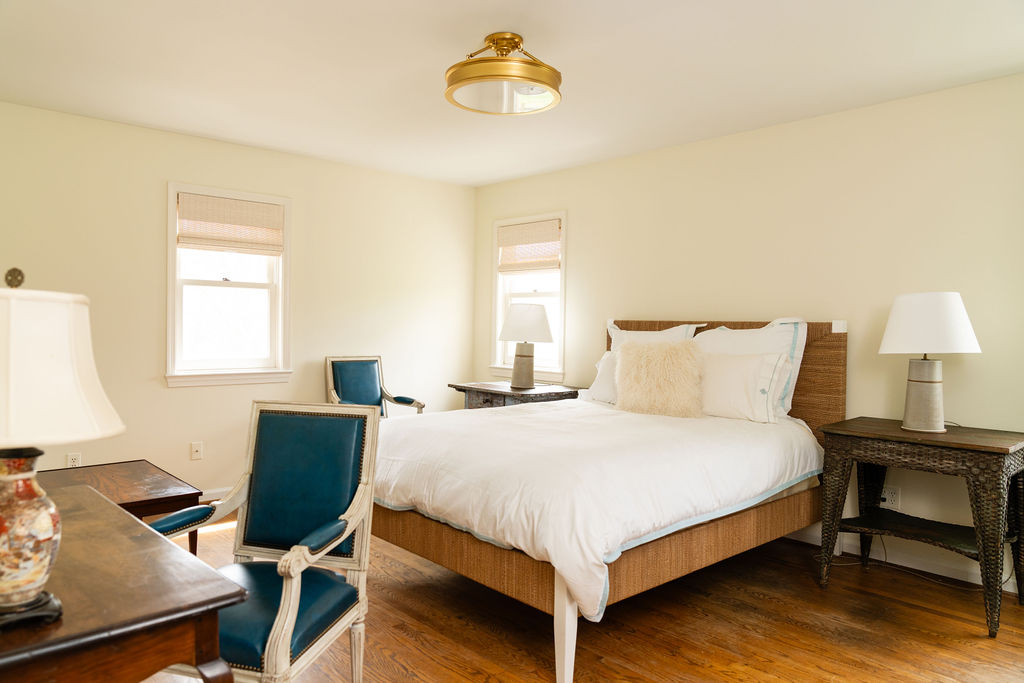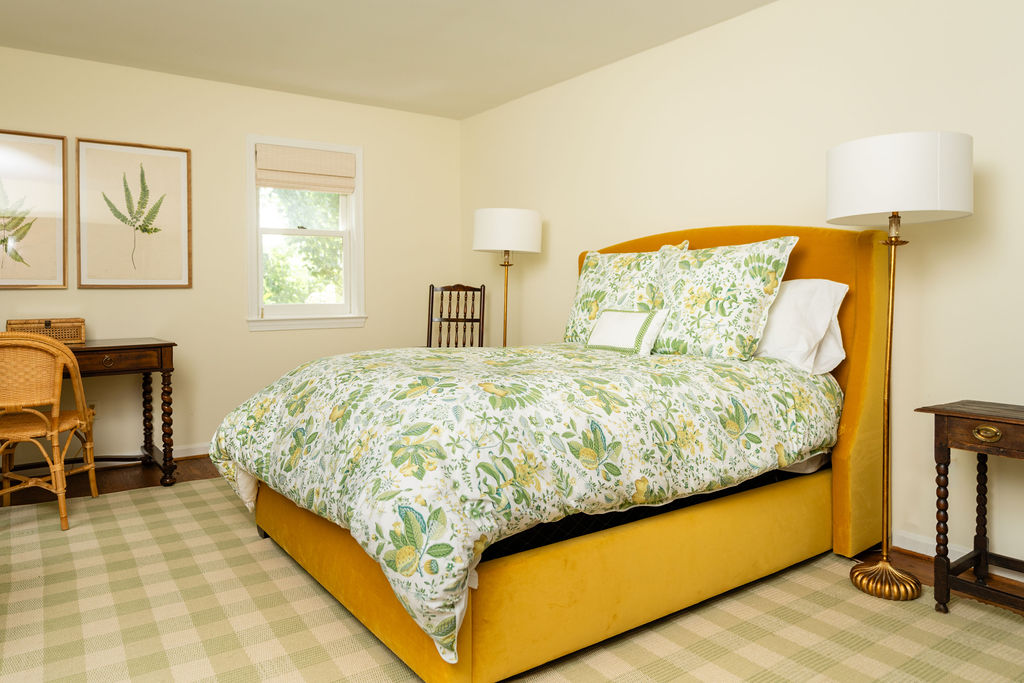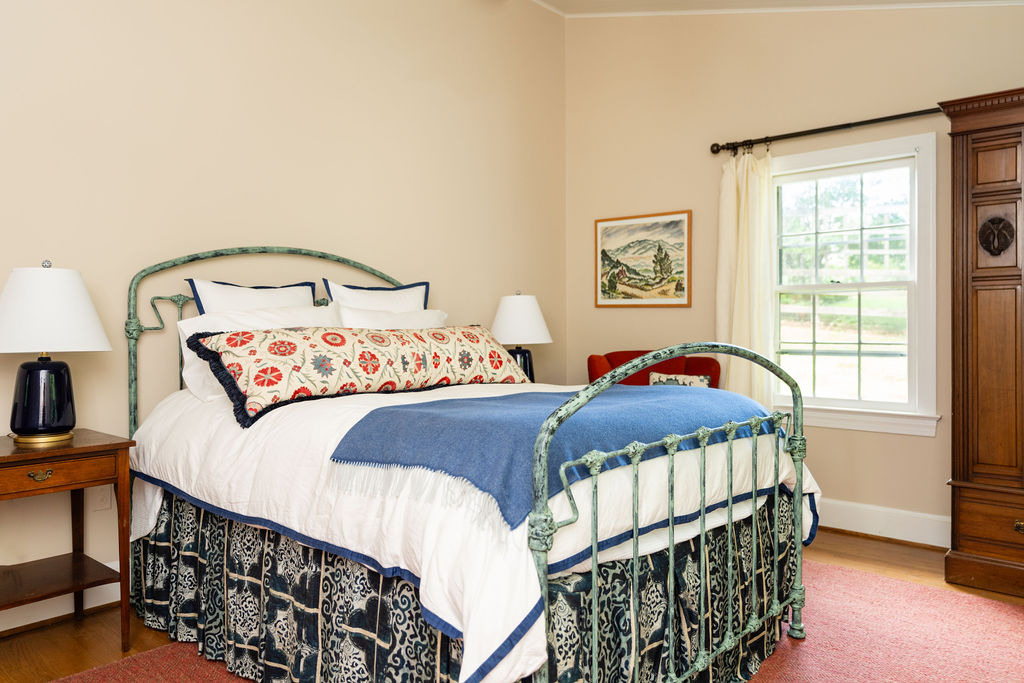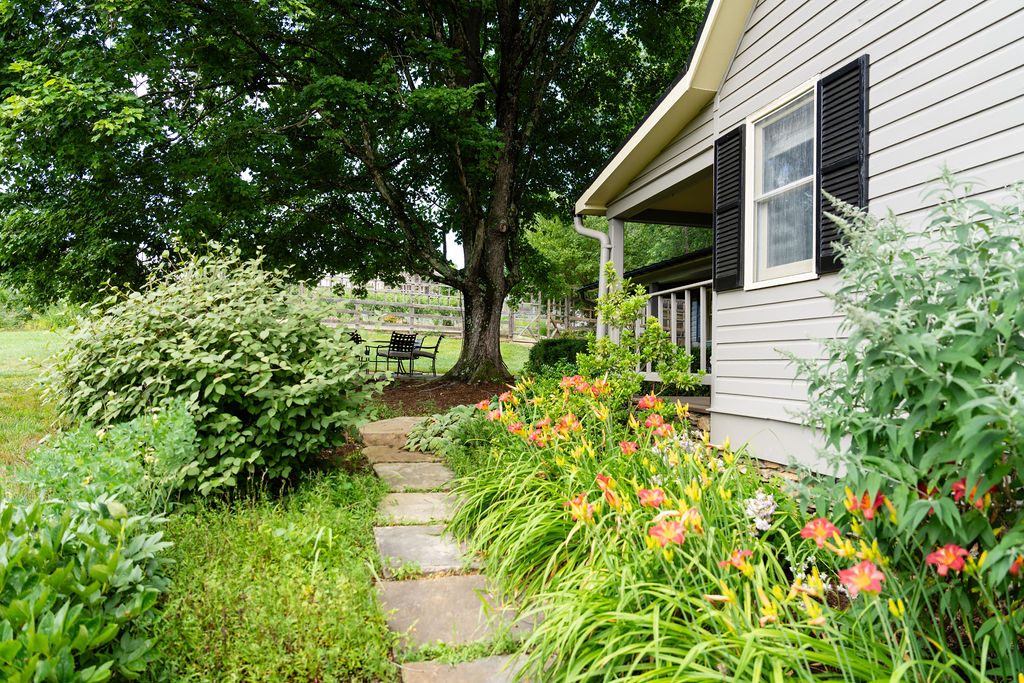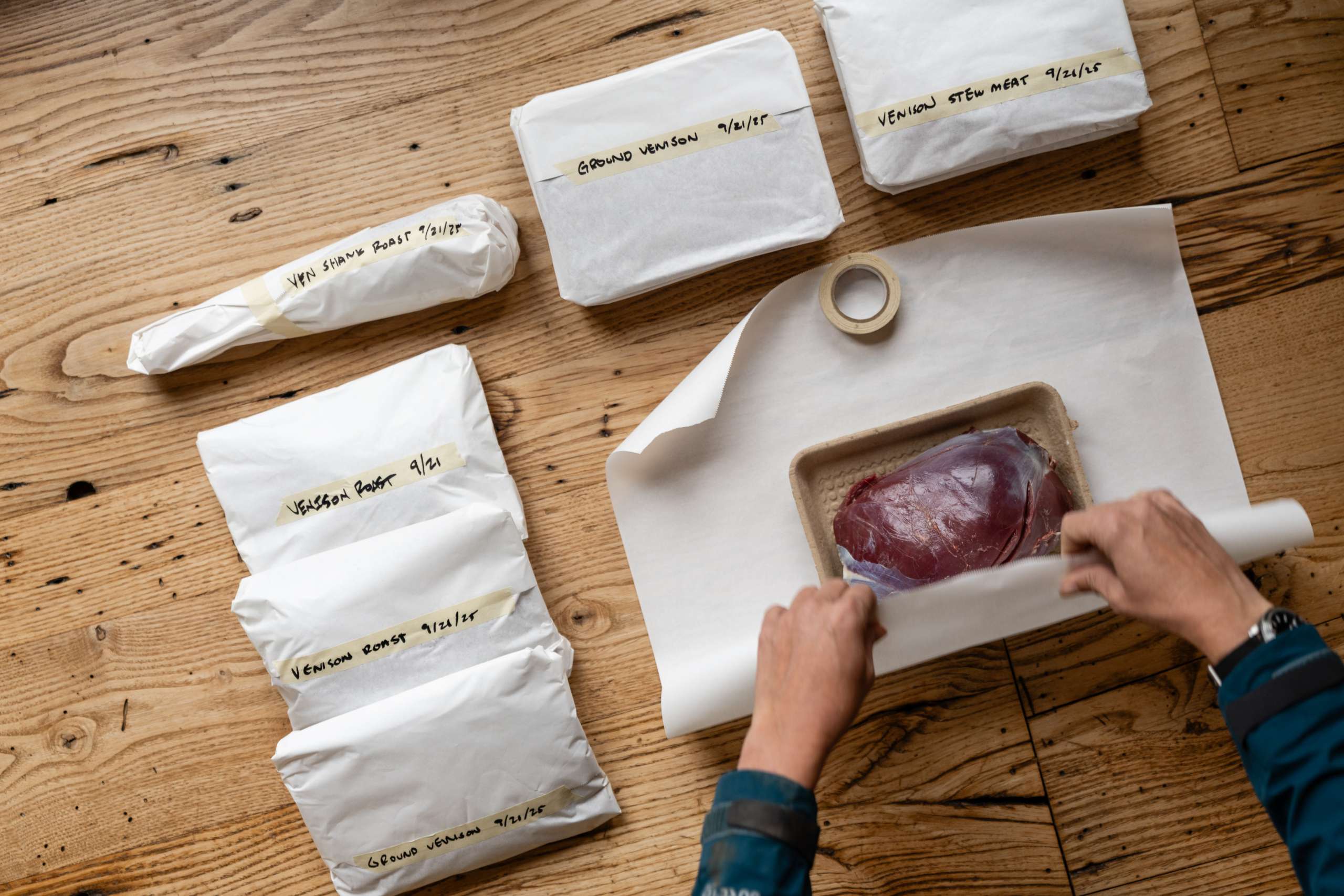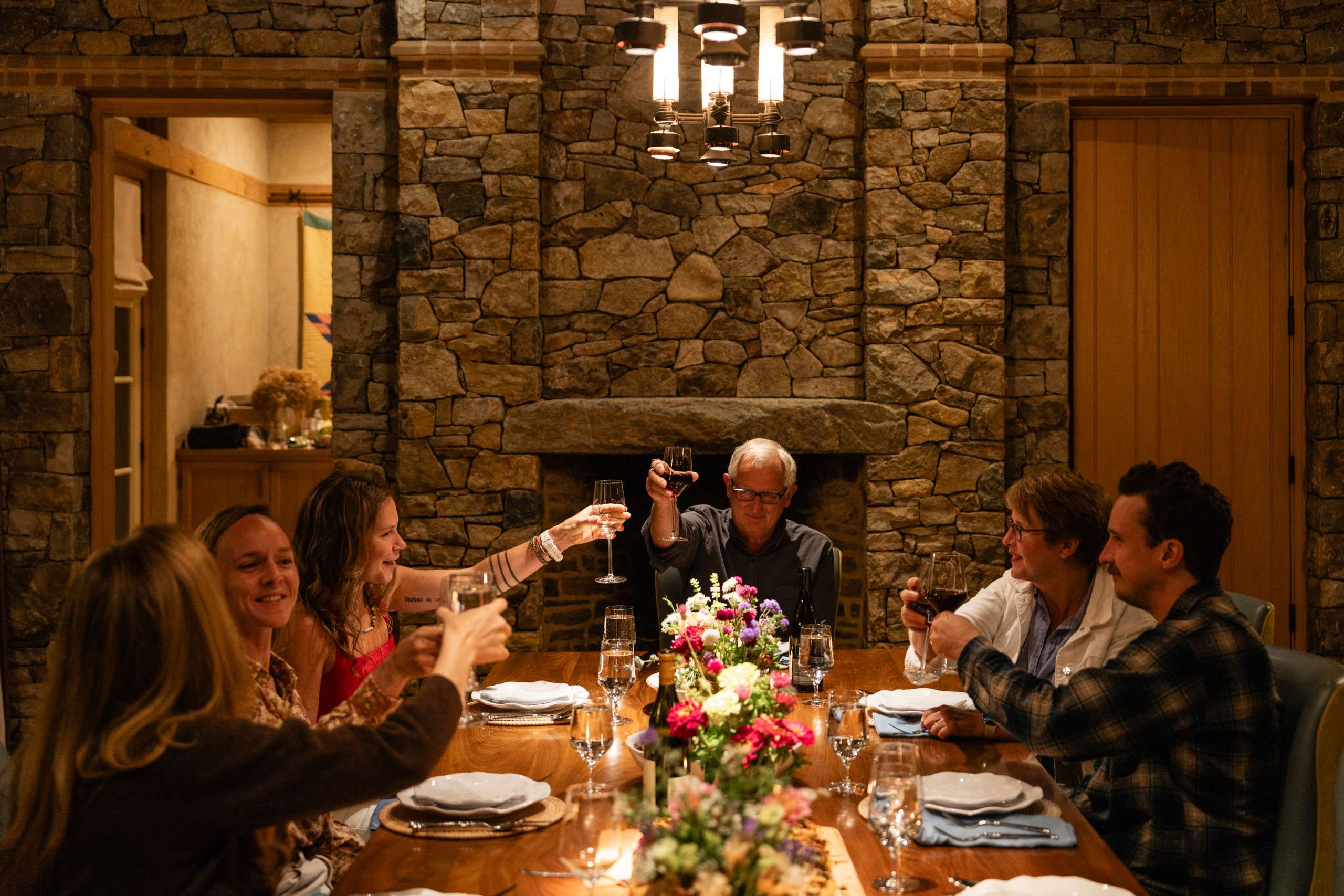
A family-owned farm dedicated to regenerative agriculture and the restoration of biodiversity.
Located in the foothills of the Blue Ridge Mountains, 75 minutes outside of Washington, DC, Chancellors Rock Farm is an environmentally sustainable working farm, and a remarkable combination of luxury and simplicity in a bucolic setting.
We believe regenerative agriculture is at the intersection of environmentalism, conservation, and sustainability.
The Everett family bought Chancellors Rock Farm in 2018. Our mission was to demonstrate environmentally sustainable farming and horticultural practices, while supporting the native ecology and wildlife of the Virginia Piedmont.
We’re dedicated to enhancing and protecting habitat, and to ensure that our agricultural practices coexist harmoniously with the natural ecosystem. These methods not only produce healthier food but also contribute to a more sustainable and resilient farming system.
We hope the farm can serve as a beautiful and unique environment in which people can explore, learn from, and experience the benefits of living harmoniously with the land.
We’ve adopted a holistic approach to farming that focuses on restoring and building soil health while improving overall ecosystem vitality. Our goal is to work with mother nature and its systems.
We raise grass fed beef, free roaming pigs and cage free chickens, eggs and turkeys. We also have a market garden where we grow fruit, herbs, vegetables and flowers.
To build soil health, we limit where our cattle graze and move them daily. We’ve introduced cover crops in former corn fields to mitigate residual pesticide use, and created riparian buffers around our streams and ponds to protect waterways and aquatic life.
Adaptive Grazing
By adaptively grazing our cattle, we use a dynamic and responsive approach to livestock management that enhances pasture health and ecosystem resilience.
We do that by limiting the area our cattle can graze, and moving them frequently, leaving 50% of the available forage in the field. Pastures are then allowed to rest.
Cow manure fertilizes the fields, so there is no need for chemical inputs. By allowing the cattle to browse and trample but not graze everything down, plants are still shading the ground, reducing soil temperatures. Grasses can rebound faster, creating stronger root systems. This cycle of disruption, rest and recovery results in improved soil structure with greater microbial biodiversity that builds on itself over time.
Chancellors Rock Farm partners with American Farmland Trust and Understanding Ag in determining our grazing practices.
Soil Health
Good farming starts with healthy soil, which is the building block for a thriving ecosystem. Adaptive grazing - using cattle like roaming ruminants - builds healthier soil.
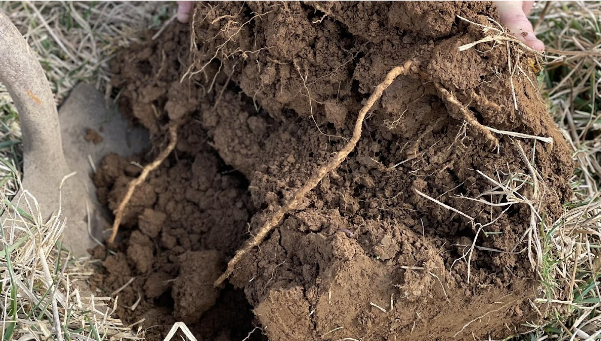
Improved soil health leads to more resilient pastures that are better adapted to conditions of drought and deluge brought about by climate change. Building up the microbiology in our soils allows for more diversity of forage as the number of species multiply, which results in more of a robust and biodiverse diet for our livestock.
We measure our success by observing and monitoring the biodiversity in our pastures and the microbiology in our soil. By prioritizing soil health, we not only enhance the productivity of our farm but also contribute to the overall quality and sustainability of the food we produce.
Hay
At Chancellors Rock, we have successfully improved the quality and diversity of our pastures, enabling them to provide enough forage for our cattle year round, with minimal hay usage.
We now no longer produce hay on the farm, which has resulted in significant savings in equipment, labor, and diesel fuel costs. Also, we reduce soil compaction by not having to run heavy equipment across out fields.
Without haying, we can ensure our pastures remain habitat for our native grassland birds, such as the Eastern Meadowlark and Red Winged Blackbird, species that are in precipitous decline in the U.S.
For more information on how haying practices effect native grassland birds, please see Virginia Working Landscapes webinar on their Native Grassland Bird Study here:
Chancellors Rock is in a conservation easement. With over 700 acres in woodland, pasture and river frontage, we strive to be good stewards of the land and preserve the variety of habitats that exist on the farm. That includes meadows in pastures, riparian buffers along streams and ponds, marshlands in low lying wet areas, and woodlands that are monitored and managed for invasive species.
We actively provide habitat for birds and pollinators, avoid the use of herbicides, and grow perennials for seed production from local ecotypes. We strive to farm with ecological balance, with the goal of increasing the biodiversity across the entire farm.
Meadows
The meadows on the farm are dynamic, resilient landscapes that put productive ecology at center stage. Native wildflowers provide food for pollinators and insect allies. The standing foliage and dried seed heads provide shelter and food for native and migrating birds, pollinators, and other species.
Over 8,000 additional native perennials and shrubs were planted in 2021 to add more species that feed wildlife and increase our biodiversity. Pollinator studies were conducted to identify species most frequented by bees.
New meadows have been seeded and we plan on introducing pollinator strips in our pastures for more habitat.
Riparian Buffers
At Chancellors Rock Farm, we’ve installed riparian buffers to safe-guard our streams and ponds from cattle-related pollution that flows into rivers.
These buffers filter runoff and maintain water quality in rivers and estuaries such as the Chesapeake Bay. And these buffers boost biodiversity significantly by creating habitat for a wider variety of plant and animal species, from beneficial insects to birds and small mammals.
Bird Life
Native grassland bird species, such as the Eastern Meadowlark and Red Wing Blackbird, are in steep population decline, as they nest in pastures that are also cut for hay or grazed by cattle. As part of the Virginia Working Landscapes Grassland Bird Study, we learned that by delaying cutting hay until mid July gave these birds an opportunity to fledge their nest.
Since we've implemented regenerative grazing technique, we now have eliminated the need for hay production all together.
In partnership with The Clifton Institute, Kestrel boxes have been installed throughout the farm, one with a camera to study their use. Bluebird boxes line the driveway, as Virginia Working Landscapes studies the impact of cavity nesting birds on the pest population of adjacent cattle fields.
Woodlands
Nearly 300 acres of Chancellors Rock Farm are woodlands, featuring streams and numerous hiking trails. In 2022, we conducted a carefully managed timber harvest to promote the growth of young oak and hickory saplings and enhance forest health. In 2023, we conducted a historical and ecological survey to identify key species and areas to focus management practices.
Our diverse woodland ecosystem supports a wide array of wildlife, including bears, foxes, raccoons, coyotes, and deer. However, the overpopulation of deer is a significant challenge throughout Rappahannock County. By excessively browsing on young saplings, deer damage the forest and native plants, hindering natural regeneration and biodiversity.
Native Seed Pilot Project
Many crucial native plants with local genetics are not available commercially for restoration projects. Local genetics in native plants are essential to help biodiversity, as these plants are better adapted to local conditions and bloom at the right time for our native pollinators.
In partnership with the Clifton Institute and Ernst Seeds, Chancellors Rock Farm is participating in a pilot project to see if native perennial seeds can be established as a viable new farm crop. We are growing 1,300 perennials from local ecotypes, to evaluate yields and value and get more native plants into production.
At Chancellors Rock, we grow fresh vegetables, fruit, herbs, and flowers from our market garden, and produce grass fed and finished beef, pasture raised heritage breed pork, free range chickens, eggs and turkeys. All of these products are available in our farm store, along with our honey, jam, soap and other hand-crafted items.
Our farm store is located in the stable on the left at the end of the drive, We are open every day from 9 AM to 6 PM. Every Saturday, from April – November, you can find us at the Rappahannock Farmer’s Market in Sperryville from 9 – 12.
To stay updated on seasonal availability in our store, please join our email list.
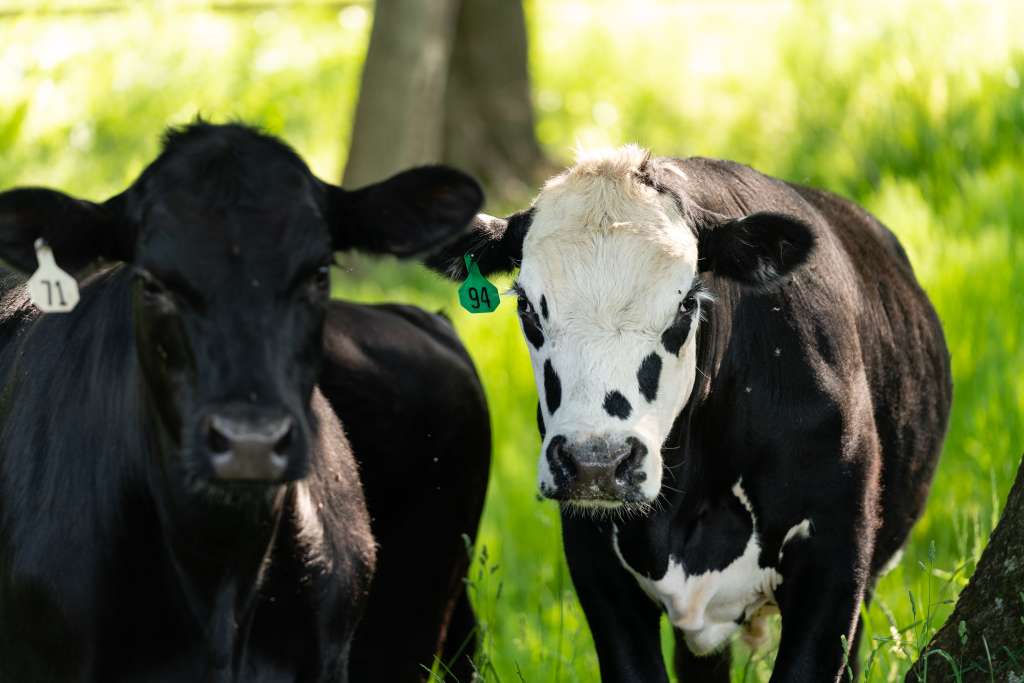
Beef
Our beef is 100% grass-fed and finished, and is antibiotic-free. Our cattle are regeneratively grazed on a diet diverse in forage. Our cows are born on the farm and have spent their entire lives grazing in our pastures.
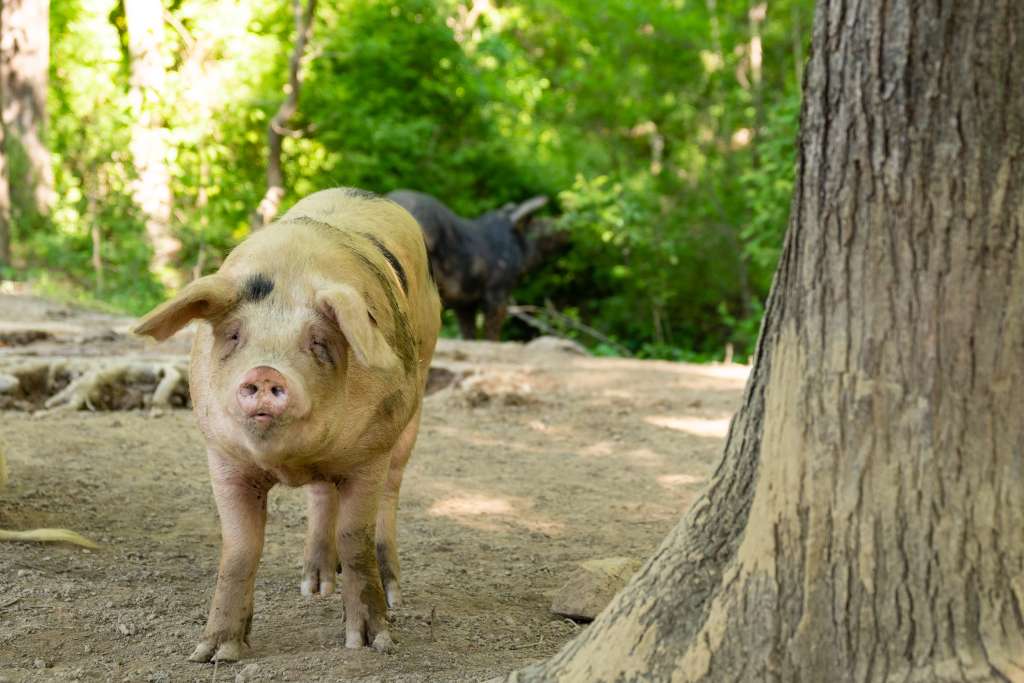
Pork
Our heritage breed pigs are Berkshire and a Tamworth/Berkshire cross. All of our pigs have their own pasture and have access to the woods where they eat acorns and roots. They are never given antibiotics.
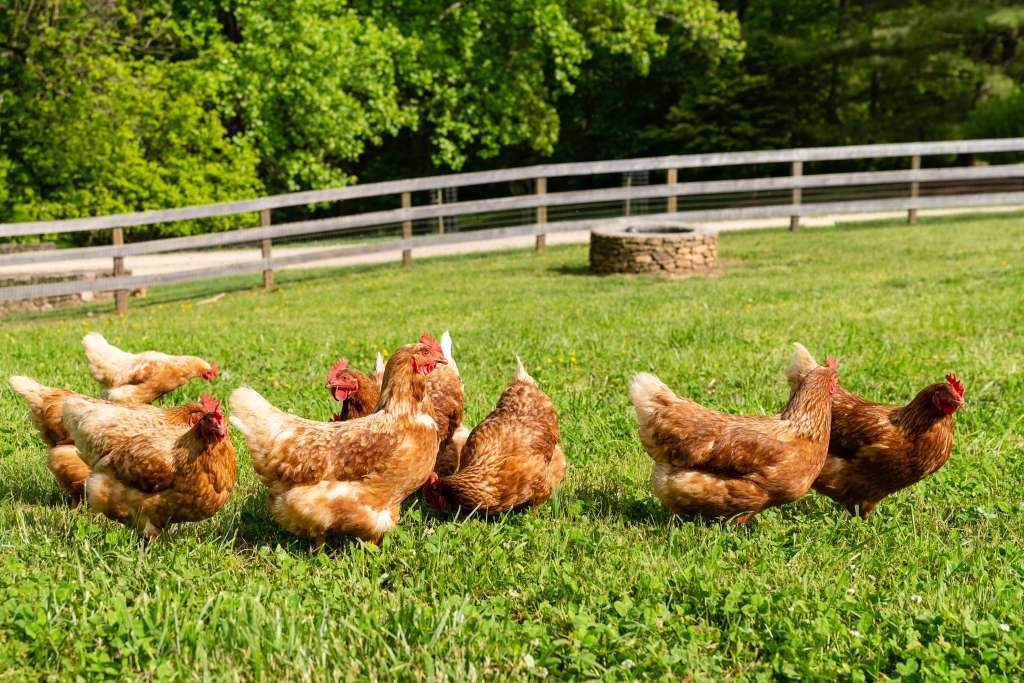
Chickens
We raise free-range Freedom Ranger chickens in an outdoor coop with fresh grass and freedom to roam. Our laying hens are free range in the pasture with our goats, protected by our Great Pyrenees Mountain dogs.
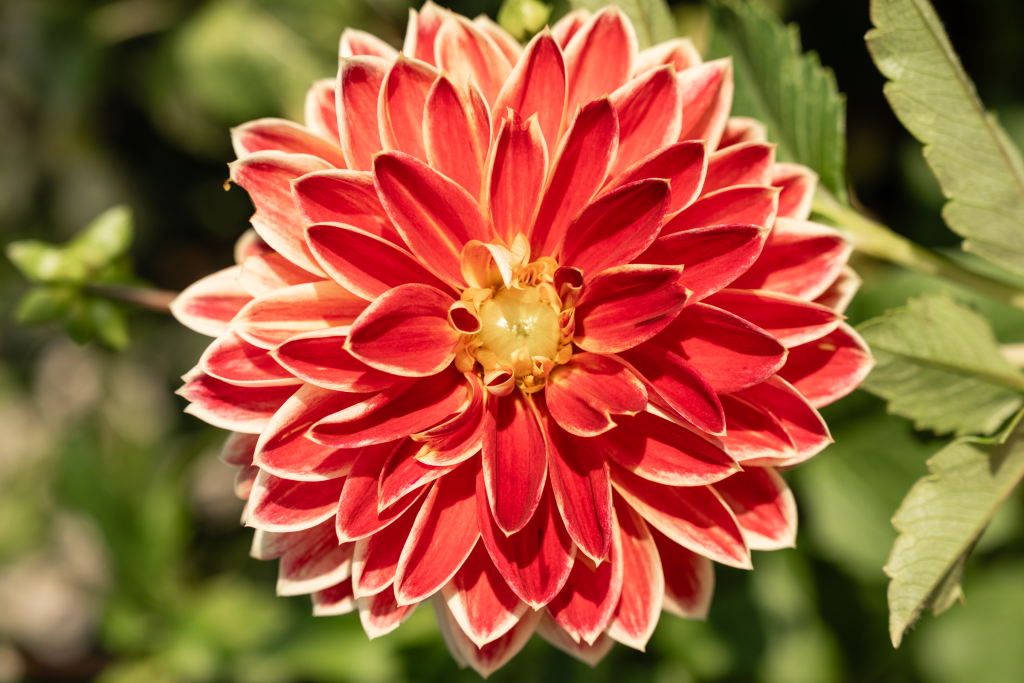
Flowers
We grow many varieties of flowers in our Market Garden. You’ll find vibrant, local fresh and dried bouquets at our Farm Store that change with the seasons.
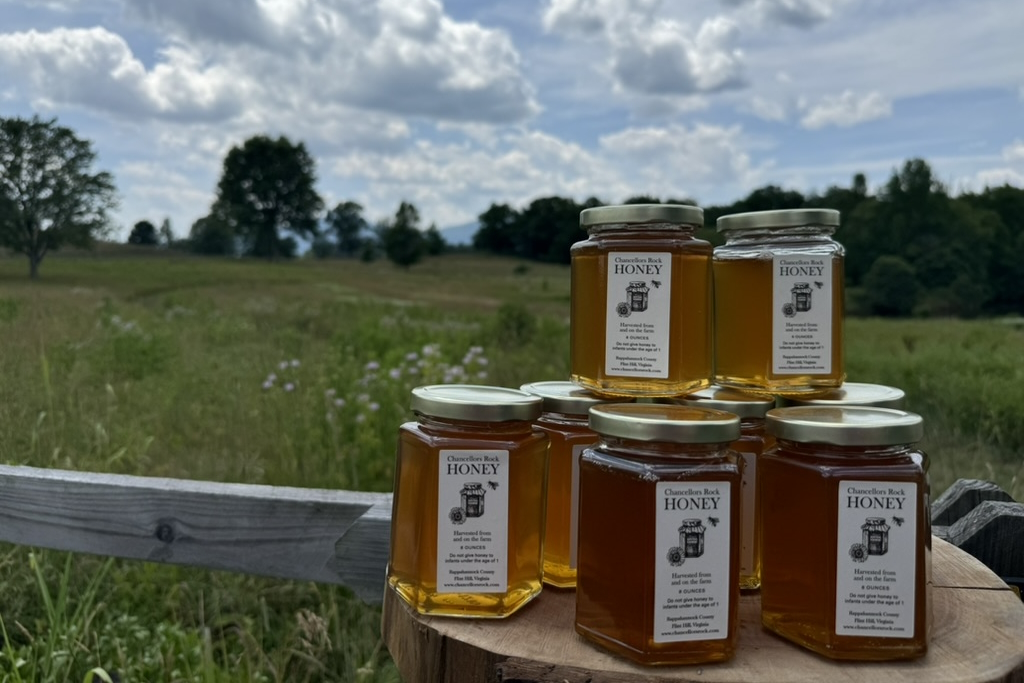
Bees
The exceptional taste of our honey comes from the diverse range of flowering trees, shrubs and perennials that our bees feed on throughout the property. Our beehives are situated in one of our meadows underneath a grove of cherry trees.
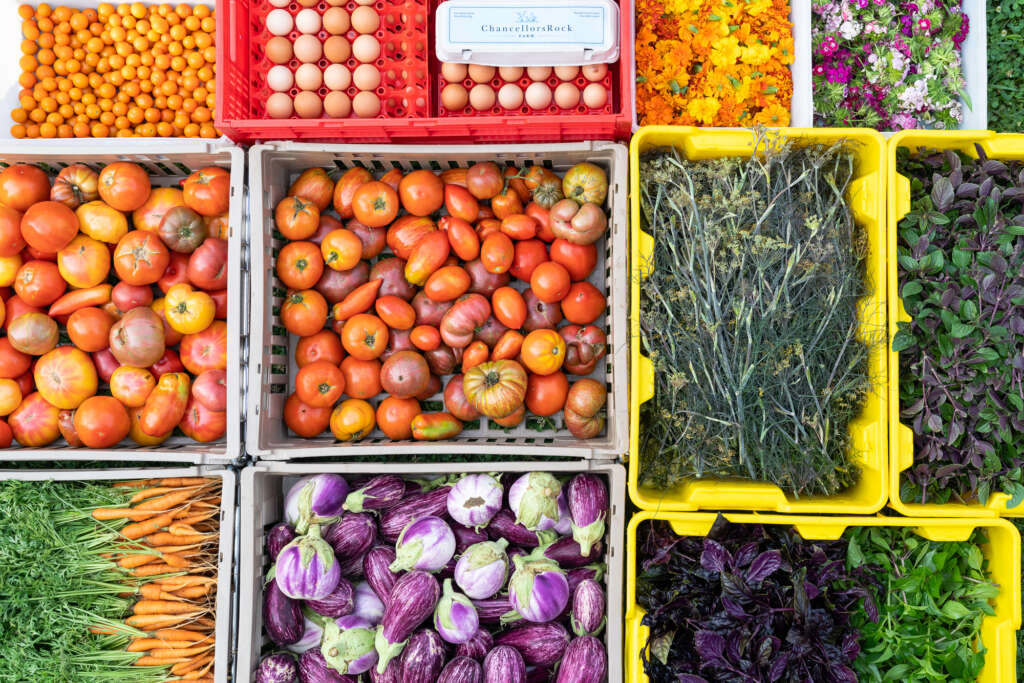
Fresh Produce
We employ time-tested French Intensive gardening practices in raised beds to grow our produce in our Market Garden. Crop rotation, companion planting and an intense focus on soil quality produces higher yields using fewer resources.
We produce a wide variety of leafy vegetables, fruit and root vegetables, as well as berries, grapes, apples, flowers and herbs.
The farm is available for a limited number of private events and retreats.
Just 75 minutes outside of Washington DC, Chancellors Rock is a remarkable and unique setting for small corporate retreats or private events. With a separate pool house for meetings, meals, and recreation, along with four fully furnished and equipped houses, the farm can accommodate 10 – 20 overnight guests.
While Chancellors Rock is a working farm and a private residence, it’s also a restful refuge where people can gather, enjoy farm to table dinners featuring food grown on the farm, and engage in the many recreational activities available on the property.
The Pool House is centered around a 25-meter pool and copper spa with his and her bath houses. The dining pavilion seats 14, and is ideally suited for meals and meetings with floor to ceiling windows that overlook a pond surrounded by meadows. There is a fully equipped kitchen with a wood burning fireplace and an exercise studio and bathroom below. All buildings and the pool deck have WIFI.
At the end of the drive is a small village of houses that are fully furnished, beautifully decorated and offer a bucolic setting to focus, relax and reset. Altogether, the farm can accommodate up to 20 guests, with a total of 10 bedrooms across four houses. All houses are privately situated, beautifully landscaped and decorated, and fully equipped with stocked kitchens, linens and towels.
Rappahannock Cabin
Sited on a bluff overlooking the Rappahannock River, the Log Cabin is a private gem tucked at the end of the drive with three bedrooms. The cabin opens up onto a beautiful parterre garden and crabapple orchard.
Blue Ridge Cottage
Tucked into the woods adjacent to the log cabin, is the smallest house on the property, with two bedrooms, one of which has bunk beds.
Piedmont Cottage
Nearest the stable, the Piedmont is the first house in the Village you come to. The Piedmont Cottage is a combined studio and one bedroom house with a shared entryway.
Farm House
The farm house is a three bedroom house sited next to the market garden and the stable, and overlooks the pasture with the goats and chickens.
Embark on an adventure that transforms you. We partner with Piedmont Hunt and Harvest in offering curated, guided sporting retreats for the conservation-minded hunter. Here, you’ll acquire the skills for ethical harvest amidst a backdrop of 700 acres of rolling meadows and storied woodlands ready for exploration.
You’ll learn sighting in, firearms orientation, hunting strategy, how to take an ethical shot, and on-field dressing and processing. In the evenings, a crackling fire and chef-prepared farm-to-table meals beckon. Beyond the hunt, you’ll have options for dozens of activities from yoga classes to tennis to foraging walks, as well as lodging in our luxury cabins.
Escape for a weekend, and return with the skills to embark on a lifetime of connection to the art of hunting, and how it sustains both land and life.
We offer 4-6 small group retreats per hunting season for up to 12 guests.
All levels - suitable for first-time hunters and regulars alike. Packages available for non-hunters to join a partner or group.
Learn more about these experiences and Piedmont Hunt & Harvest.
To inquire about private events and retreats on the farm, please email us with your request at info@chancellorsrock.com.
All lodging requires a two night minimum, and the poolhouse is available only in conjunction with overnight rentals. We are are unable to accommodate large events such as weddings.
We also offer tours for school groups, guided native plant tours and meadow walks, and other educational events with our nonprofit partners.
If you would like to be added to our mailing list for farm news and our weekly availability during the growing season, click here.
Our farm store is open everyday from 9 - 6 in the first stall of the stable, which is at the end of a long gravel driveway.

